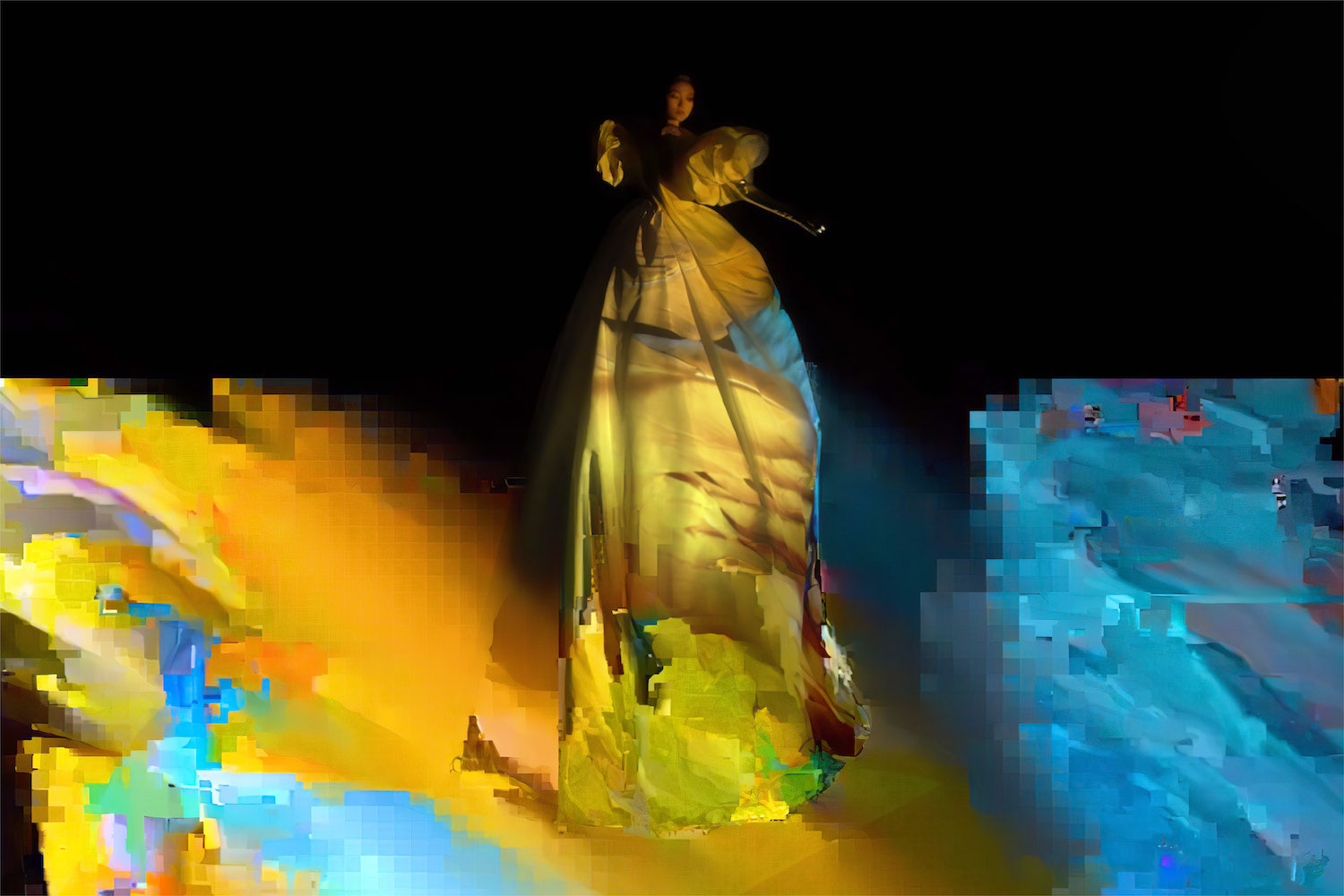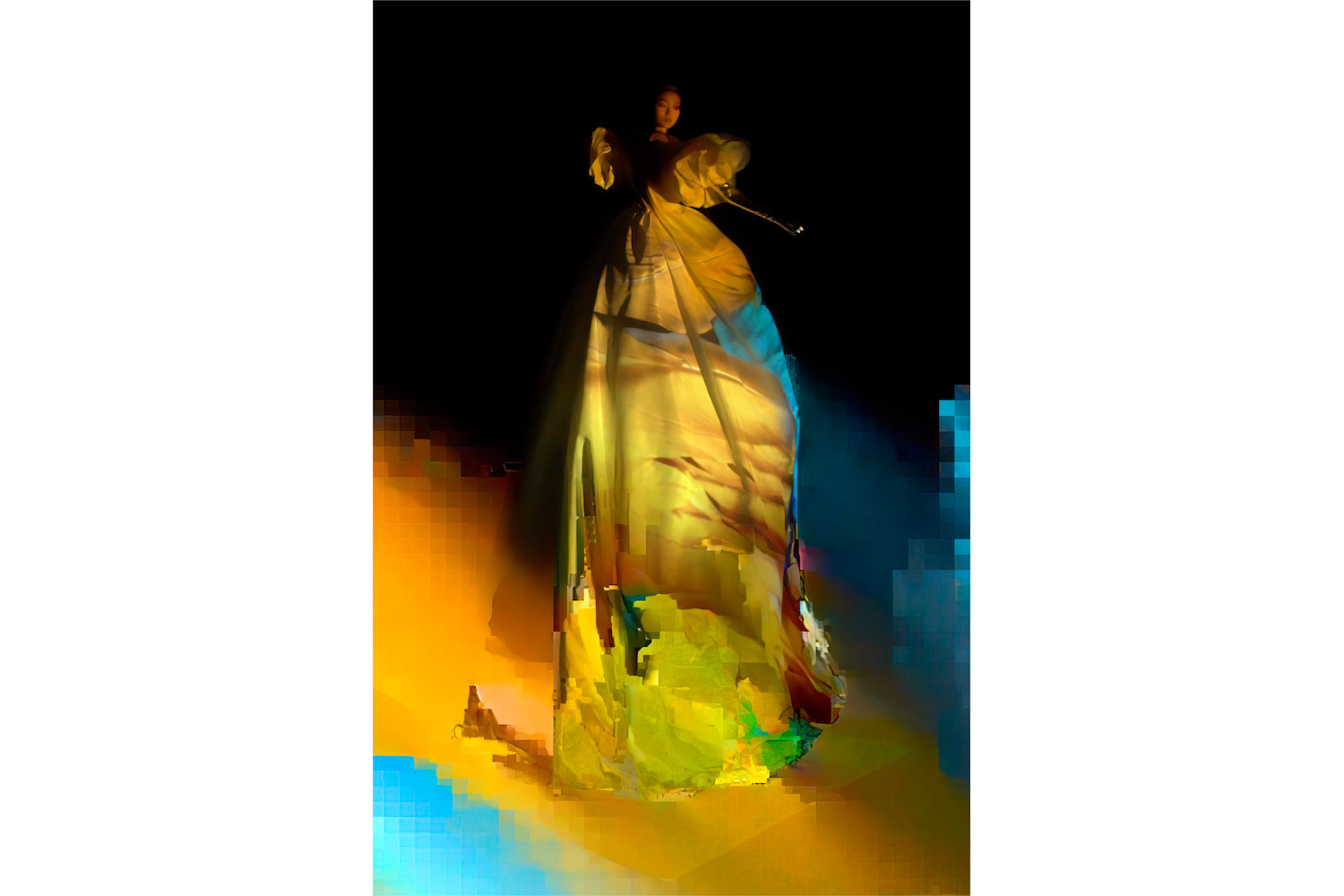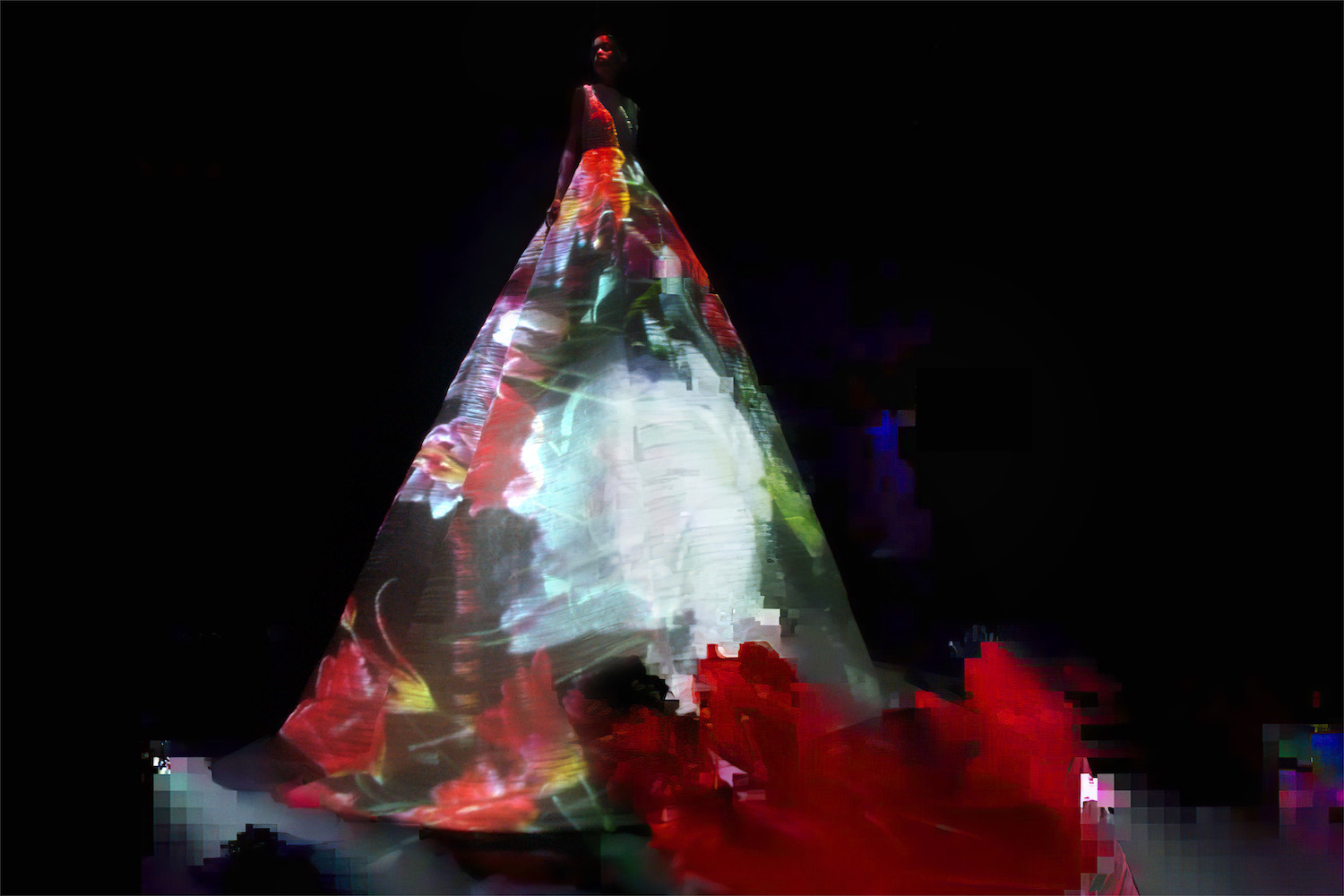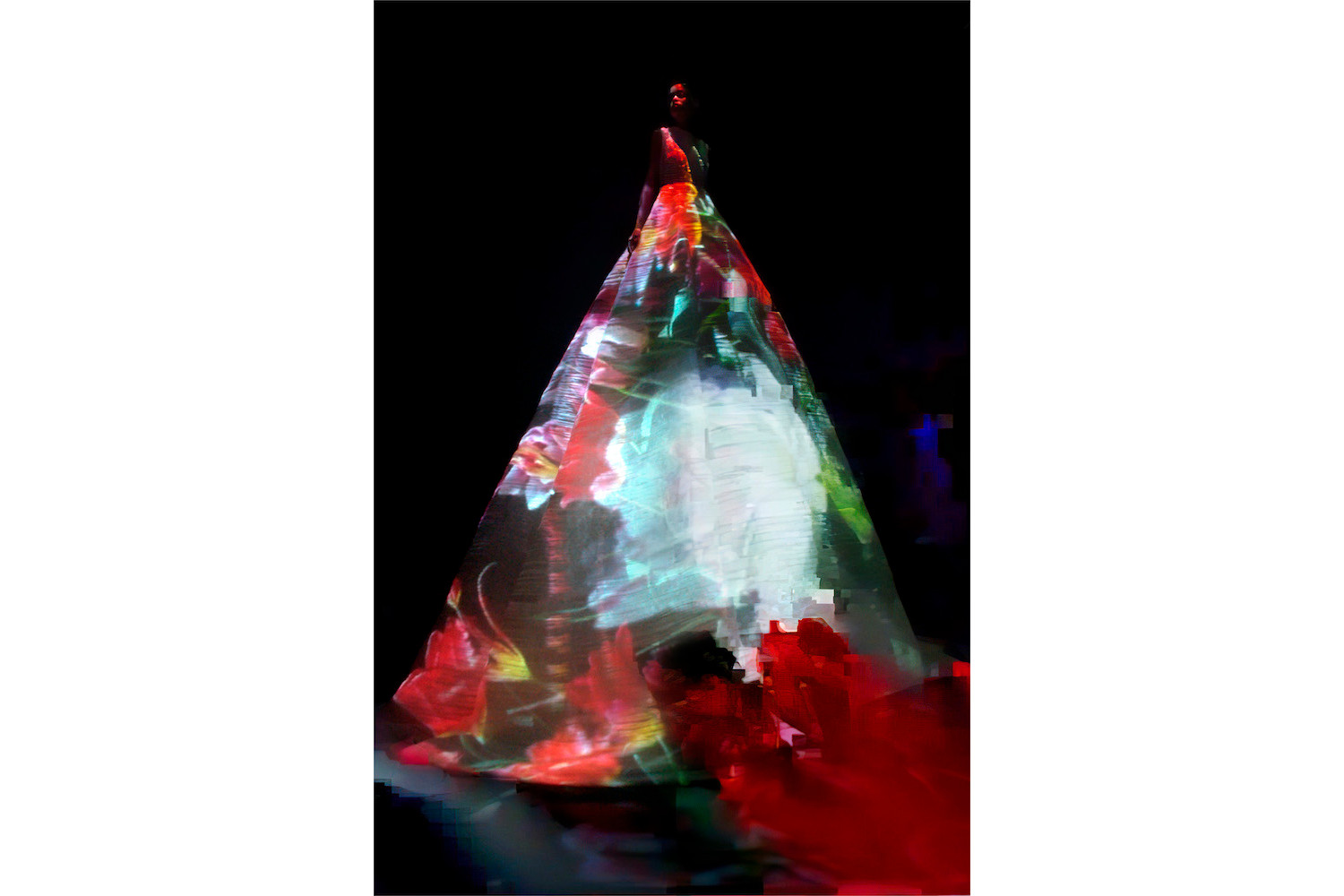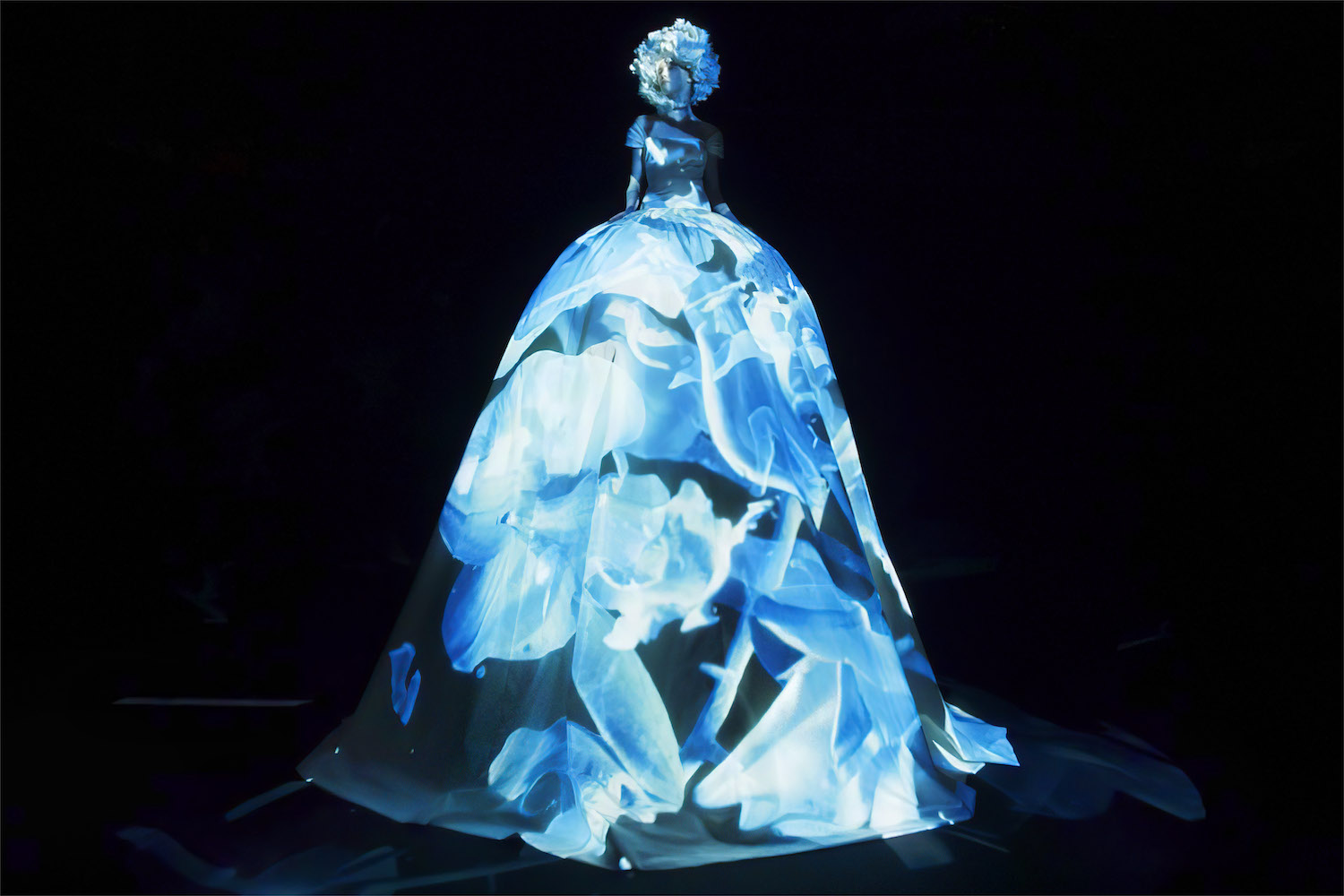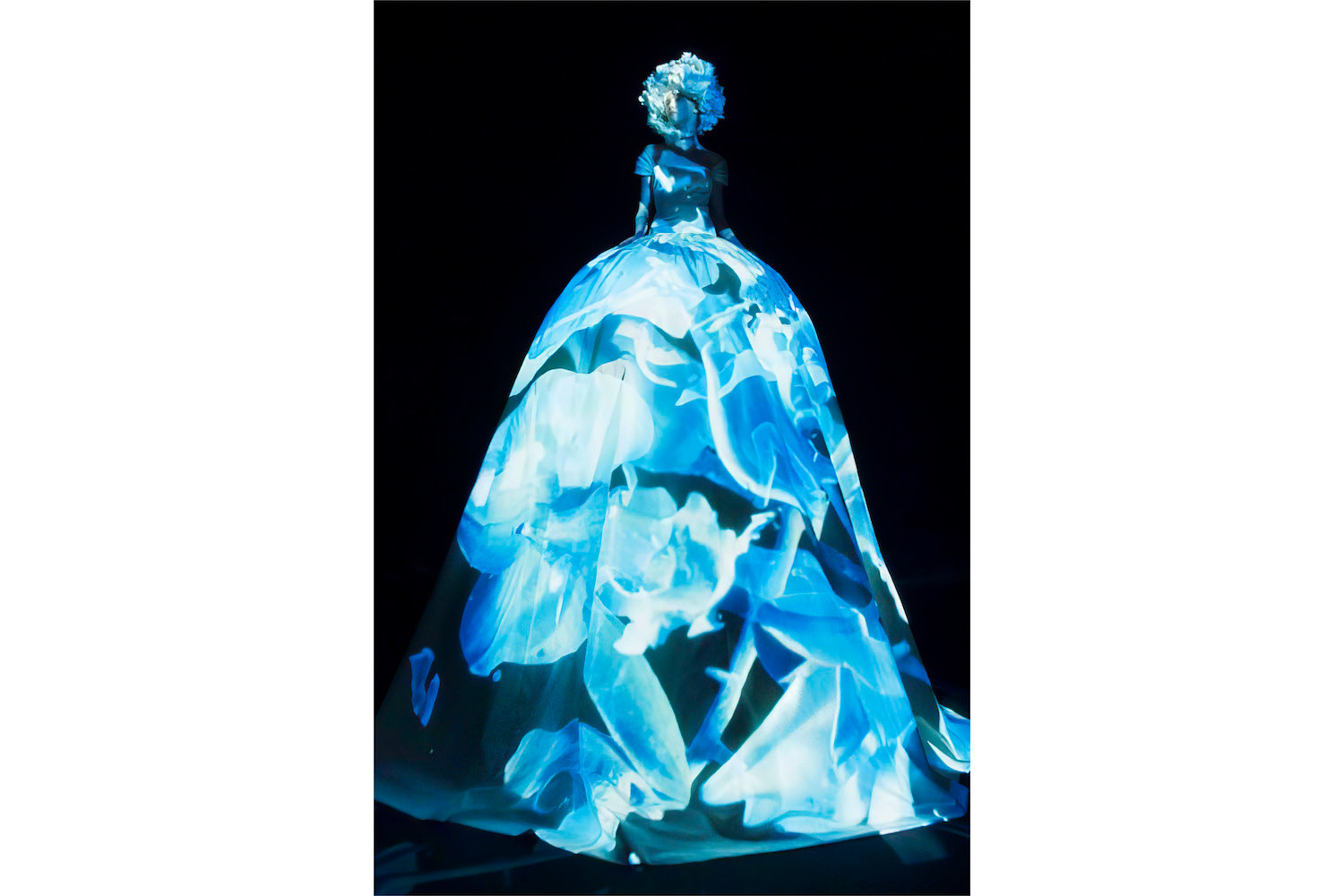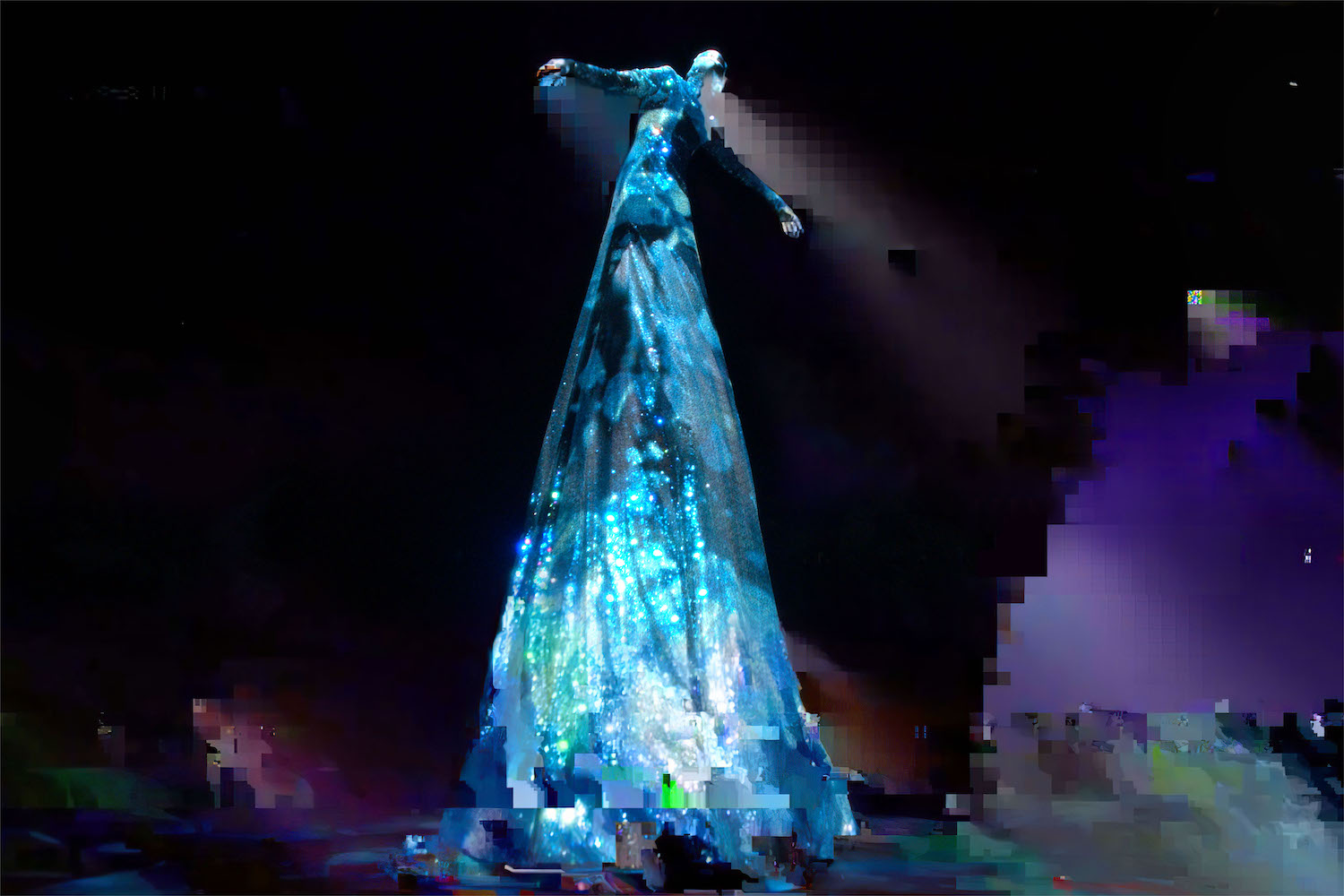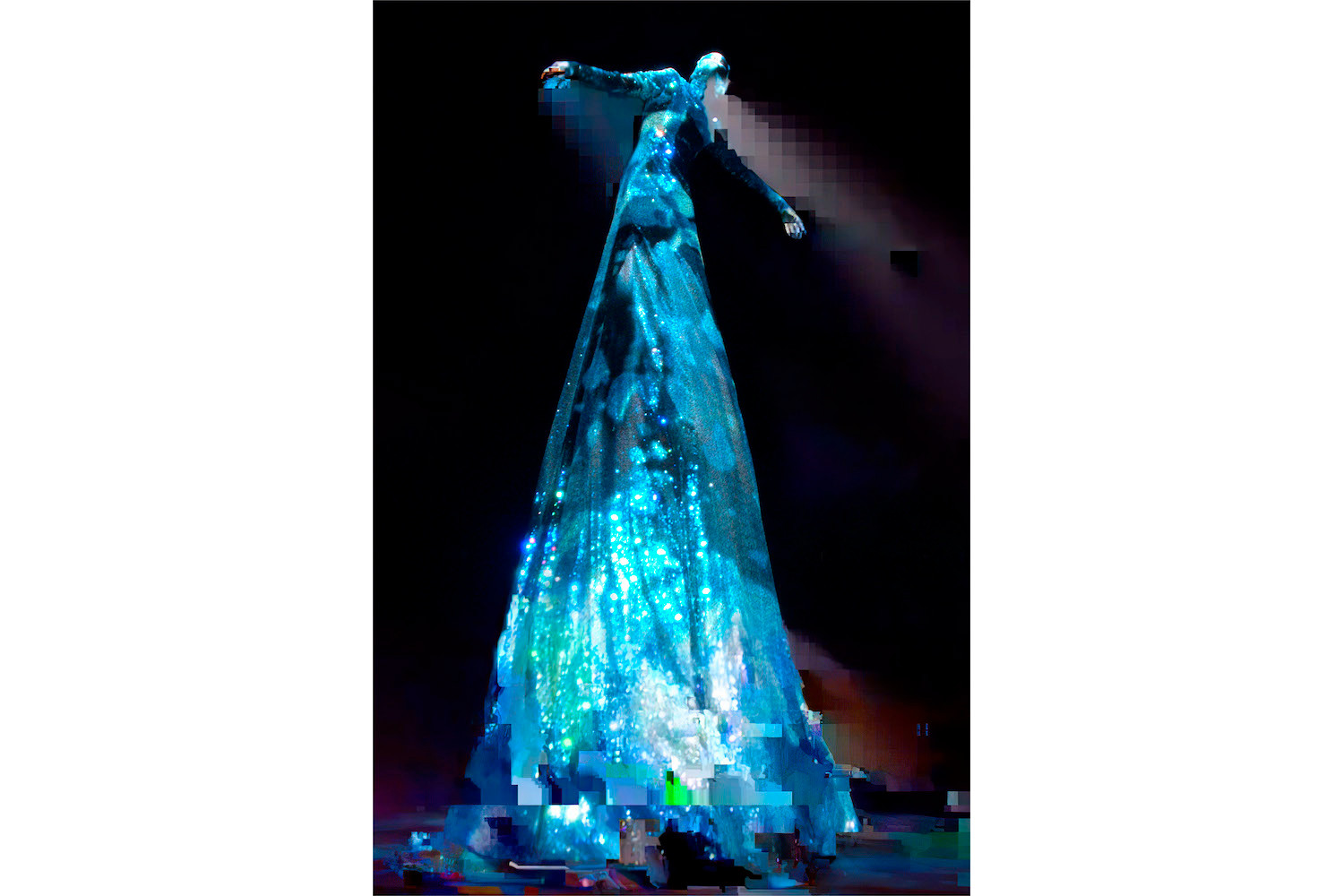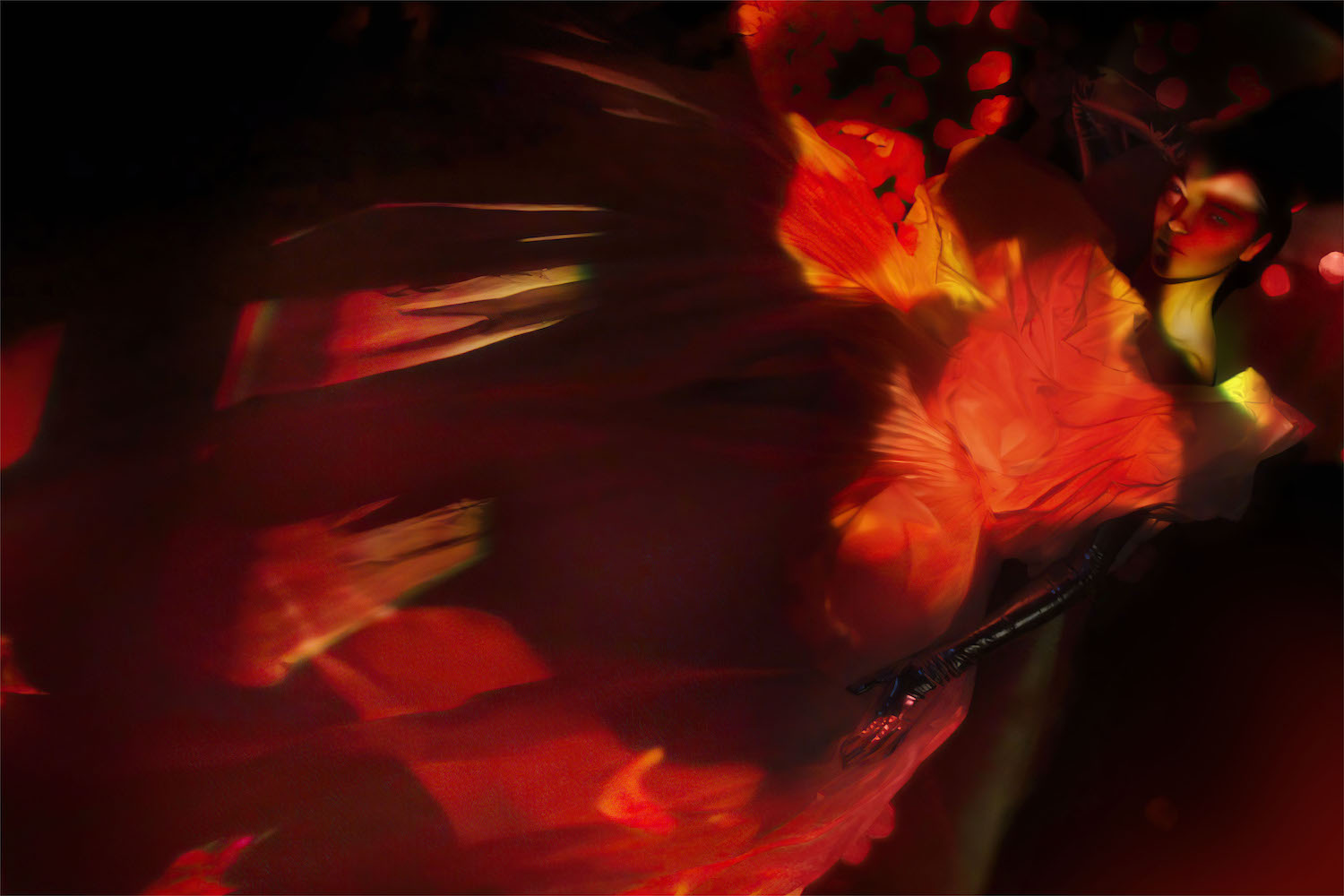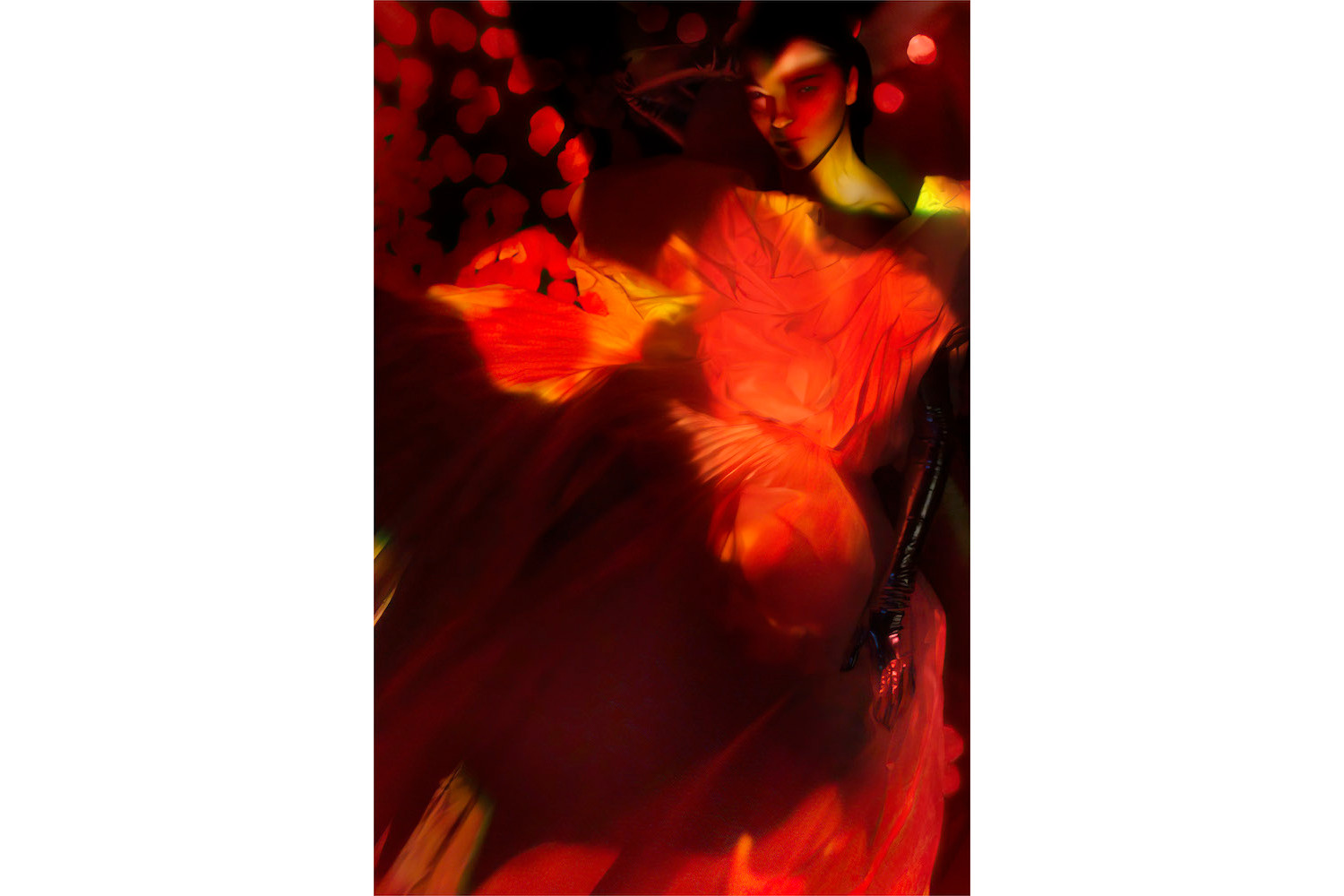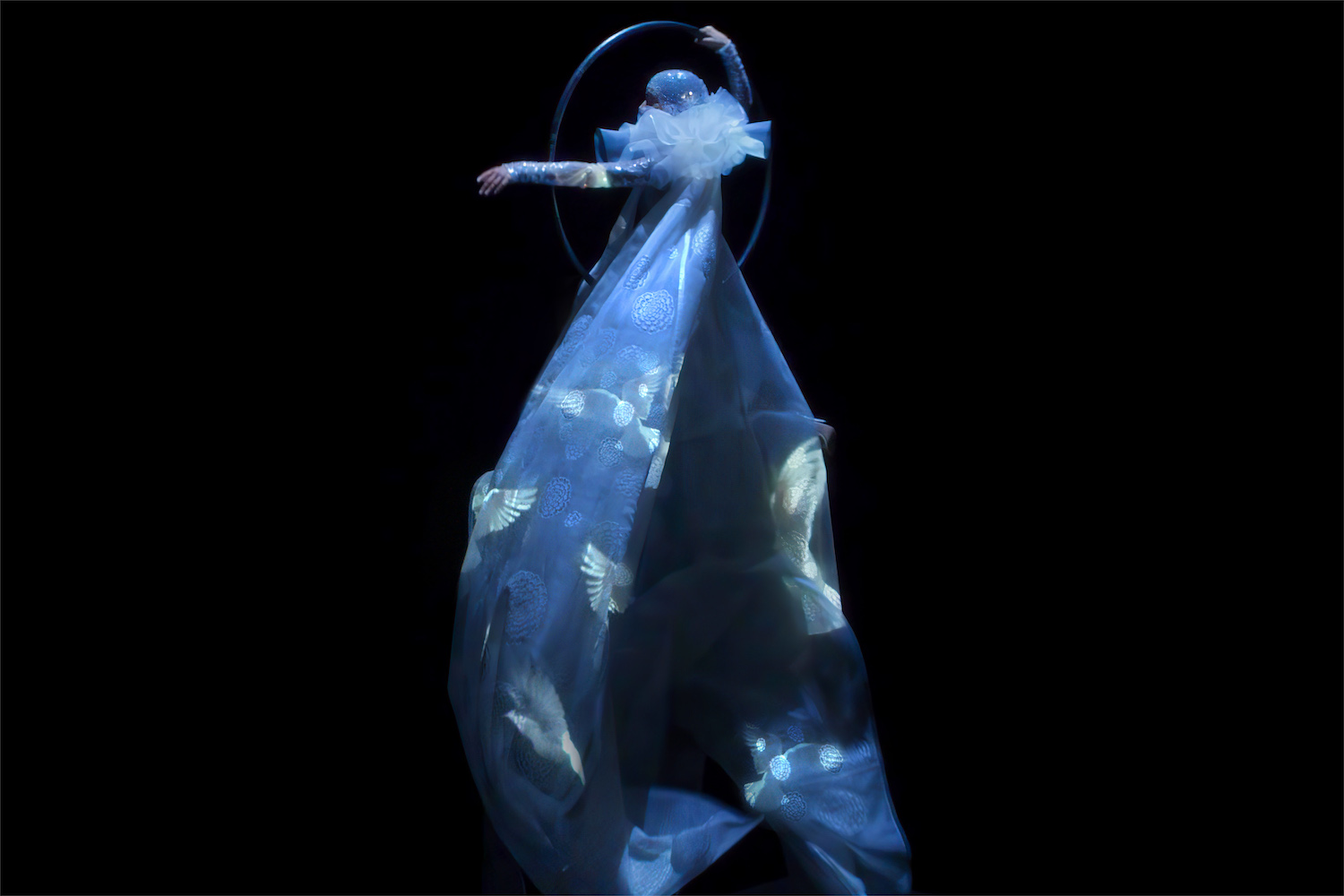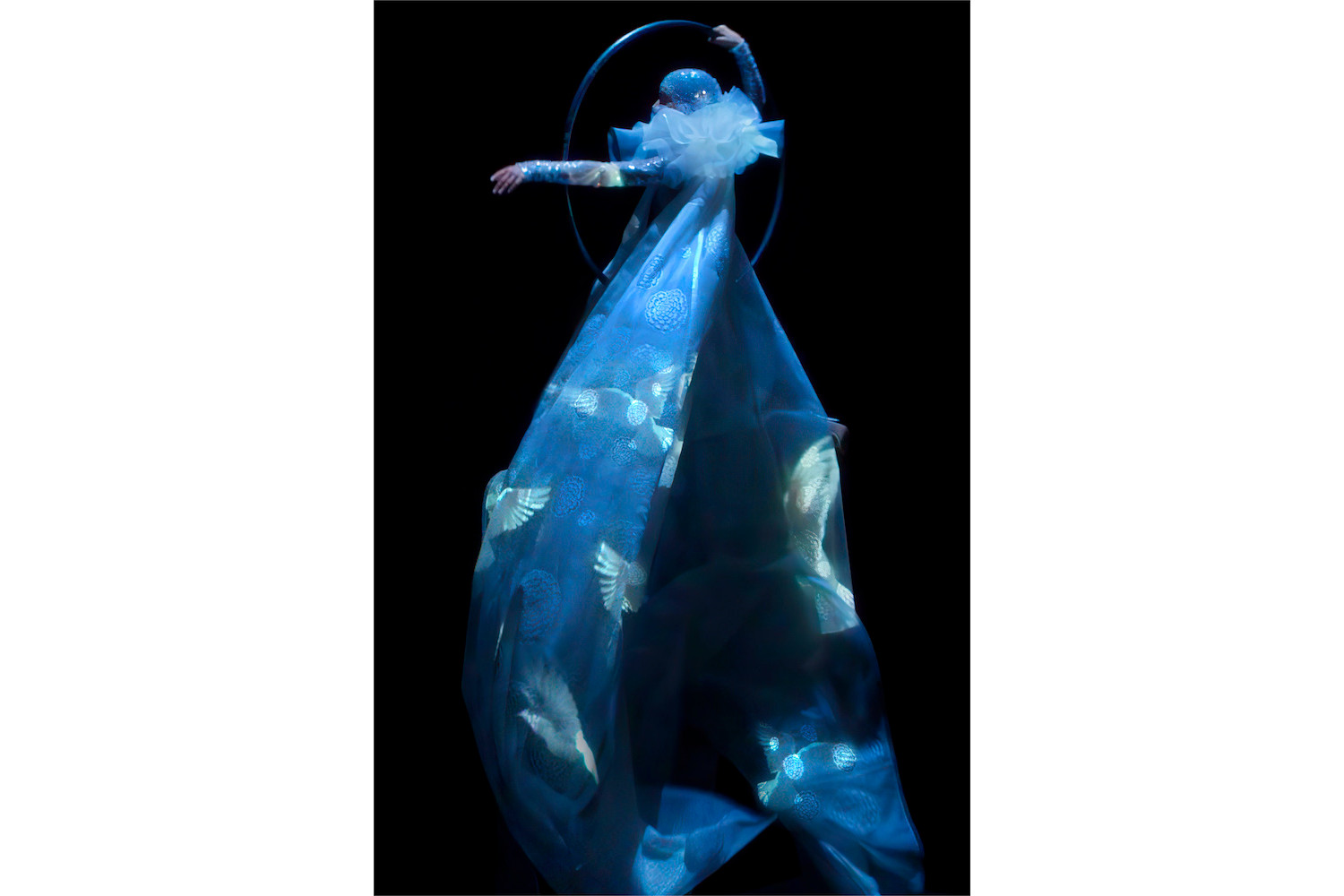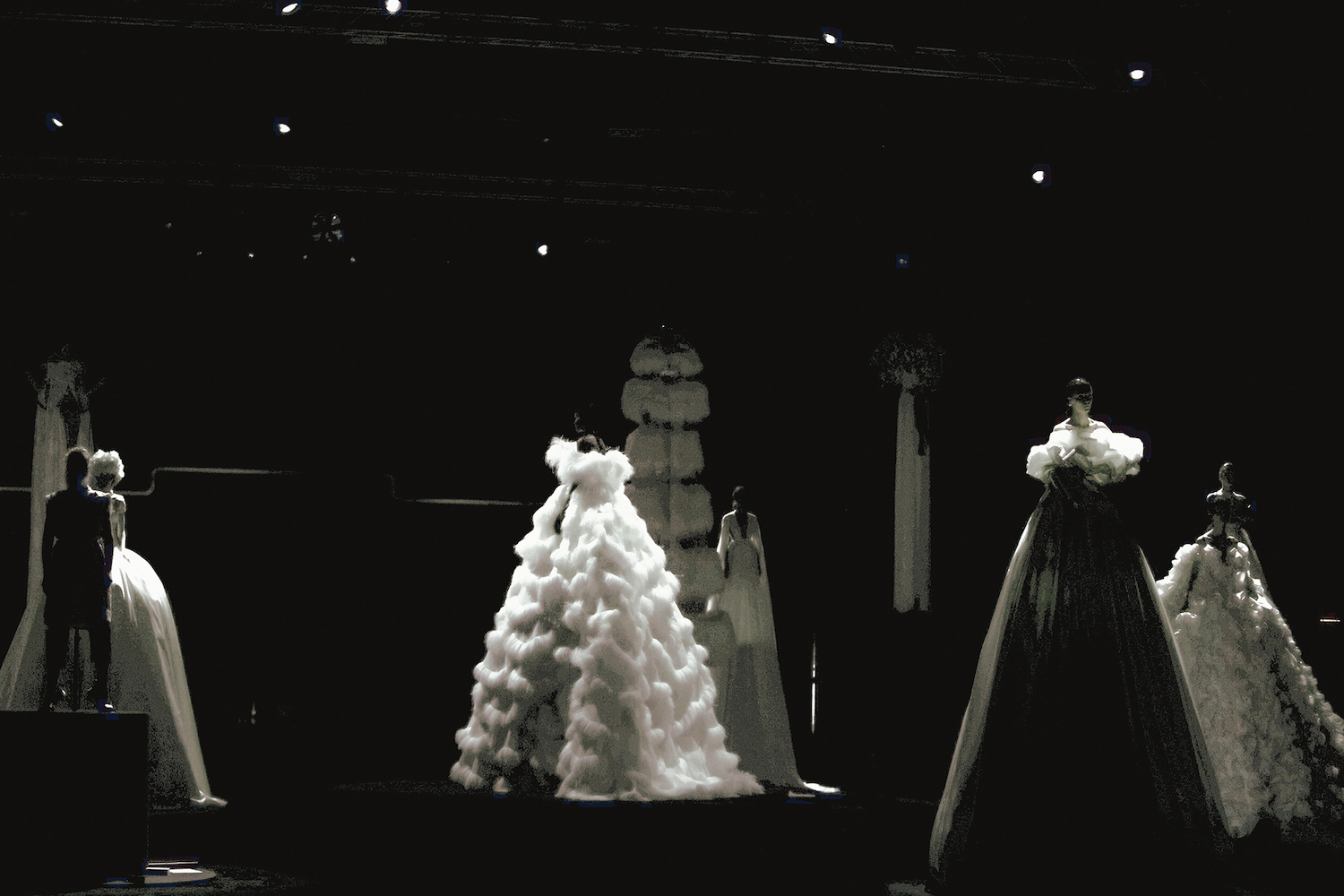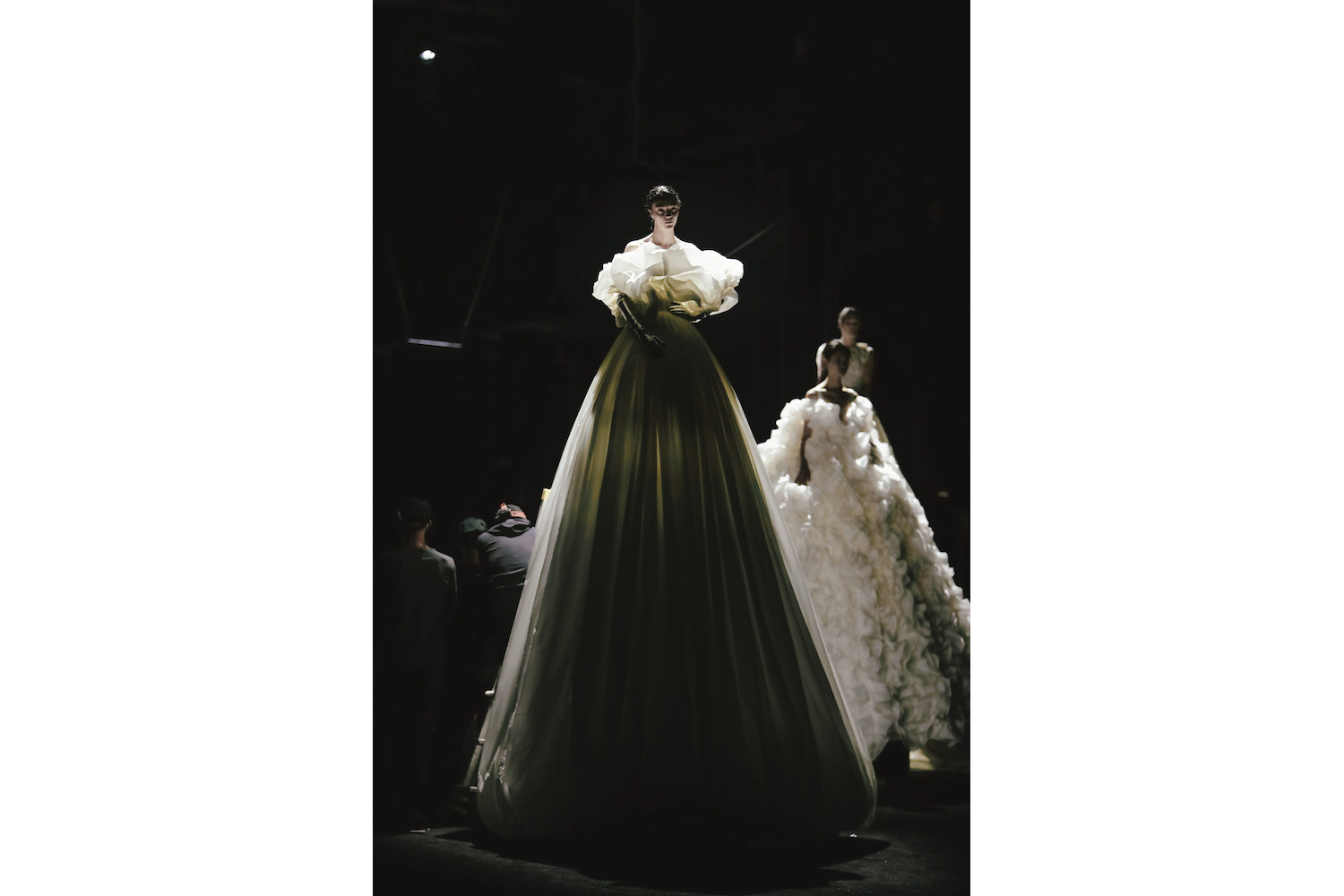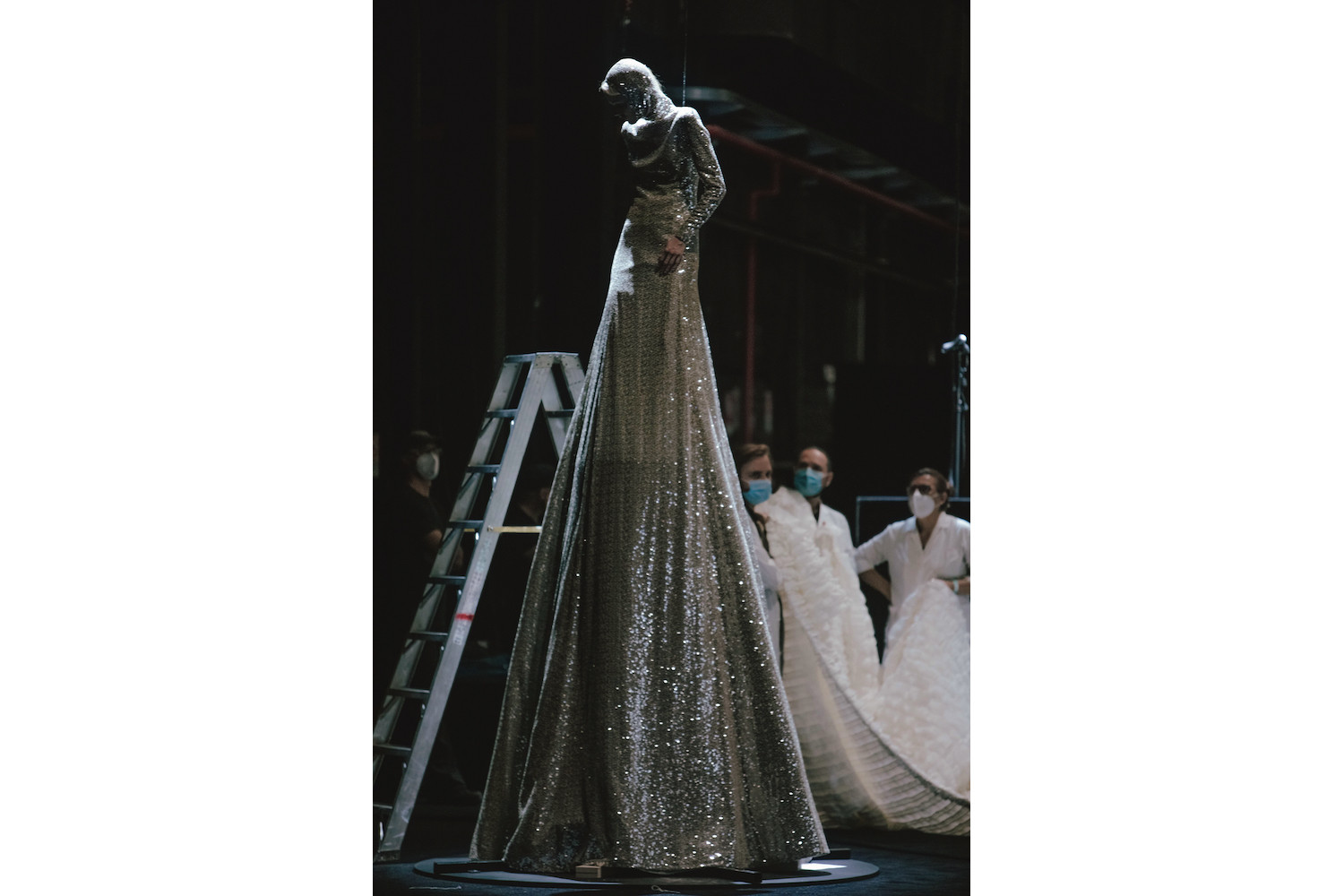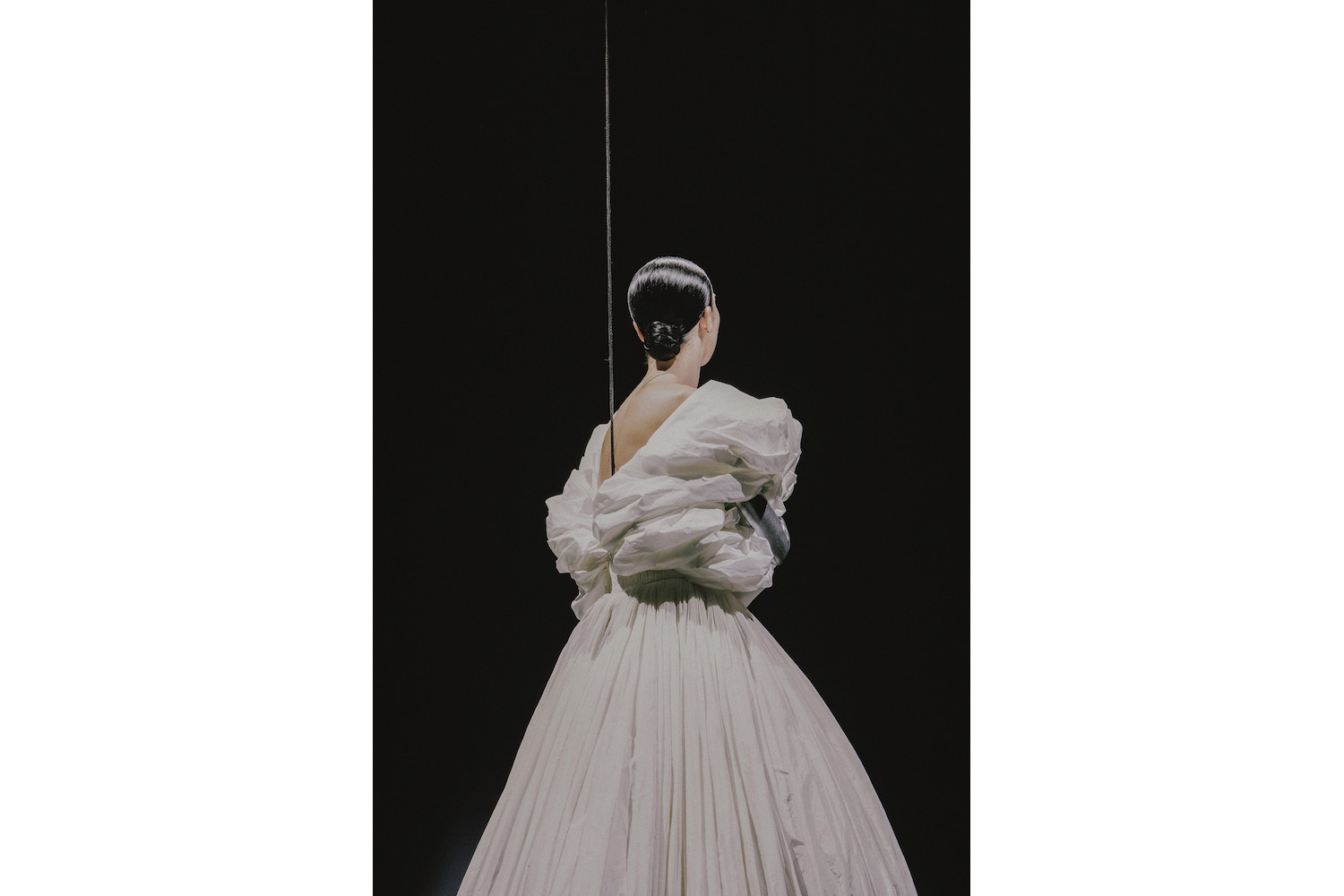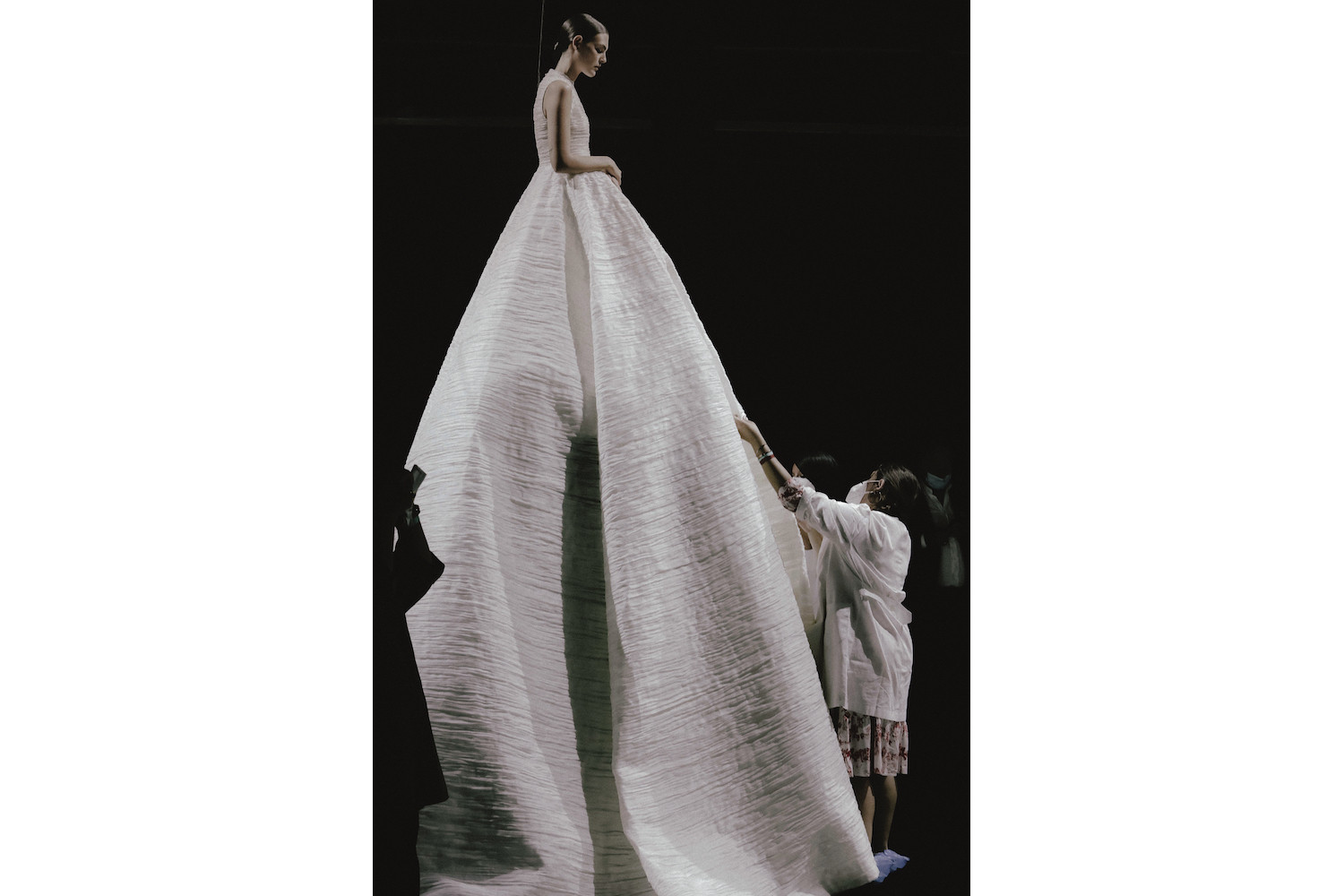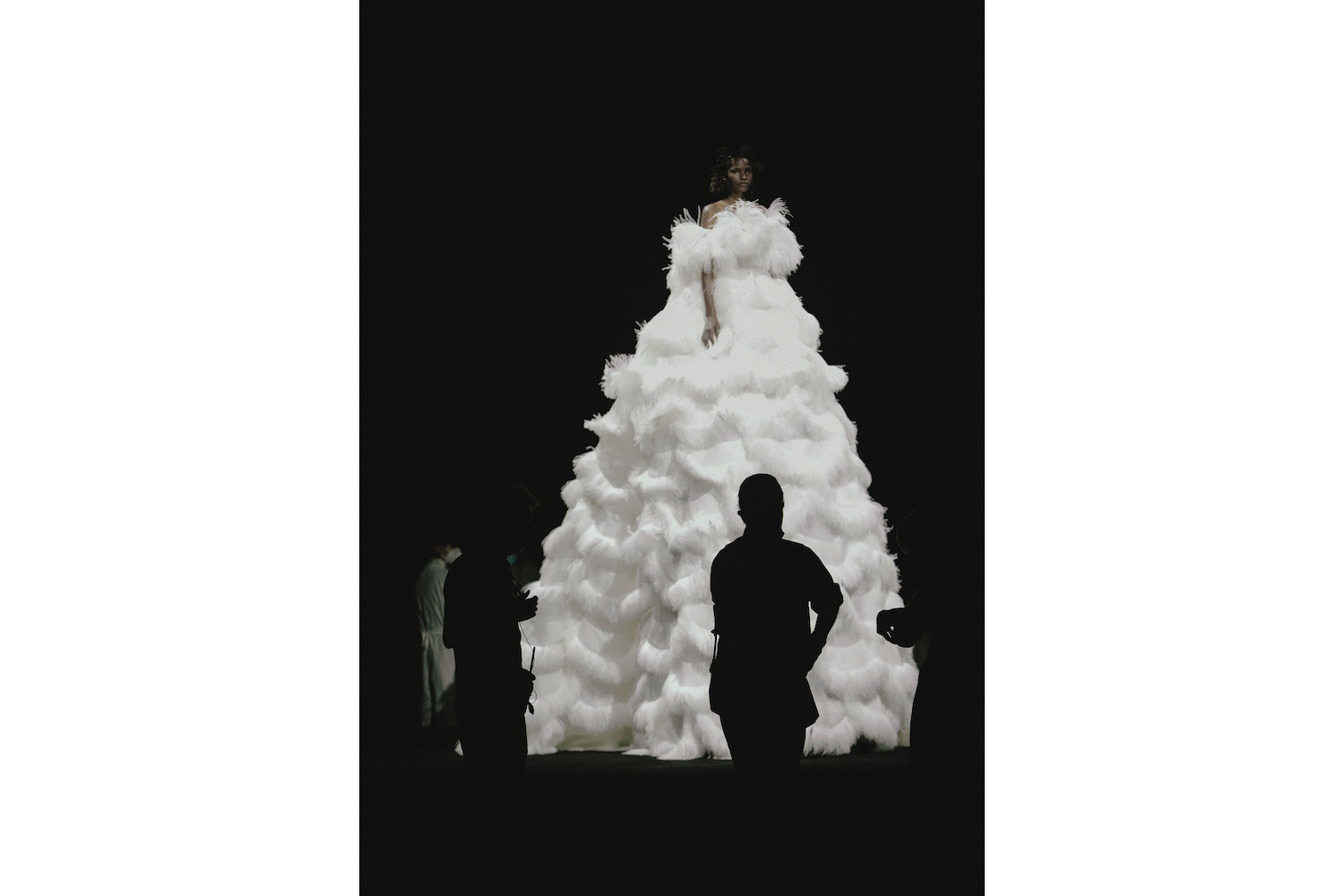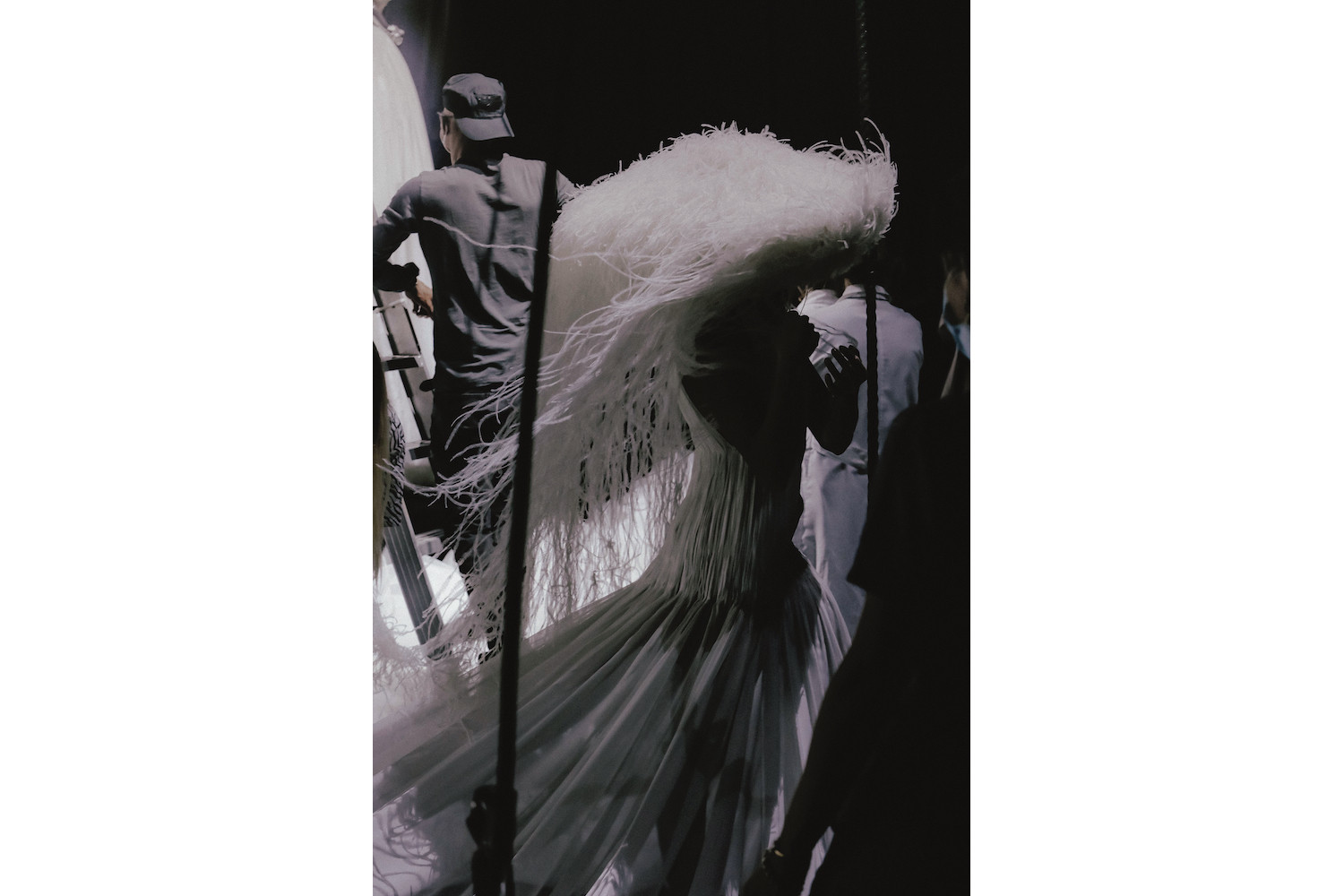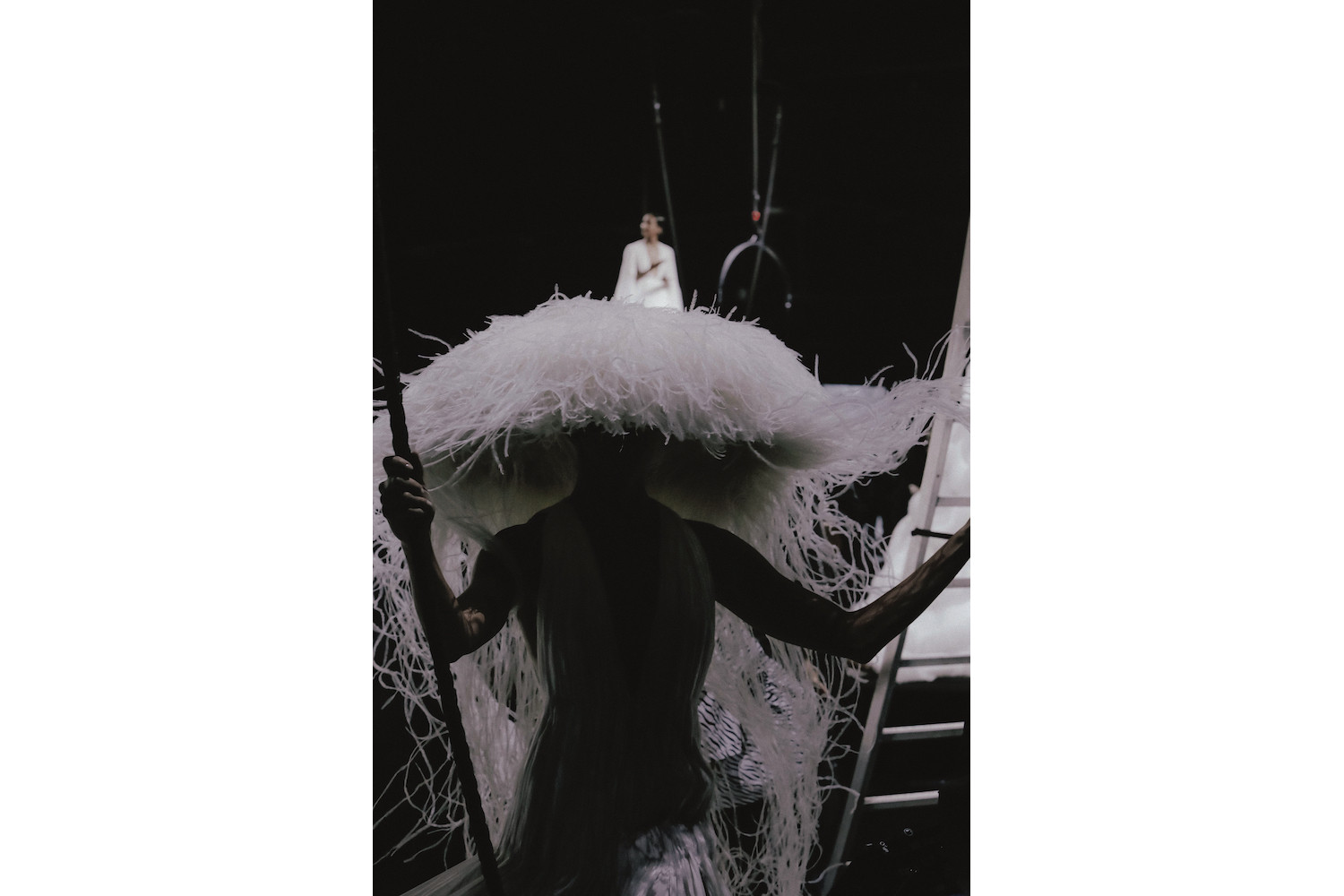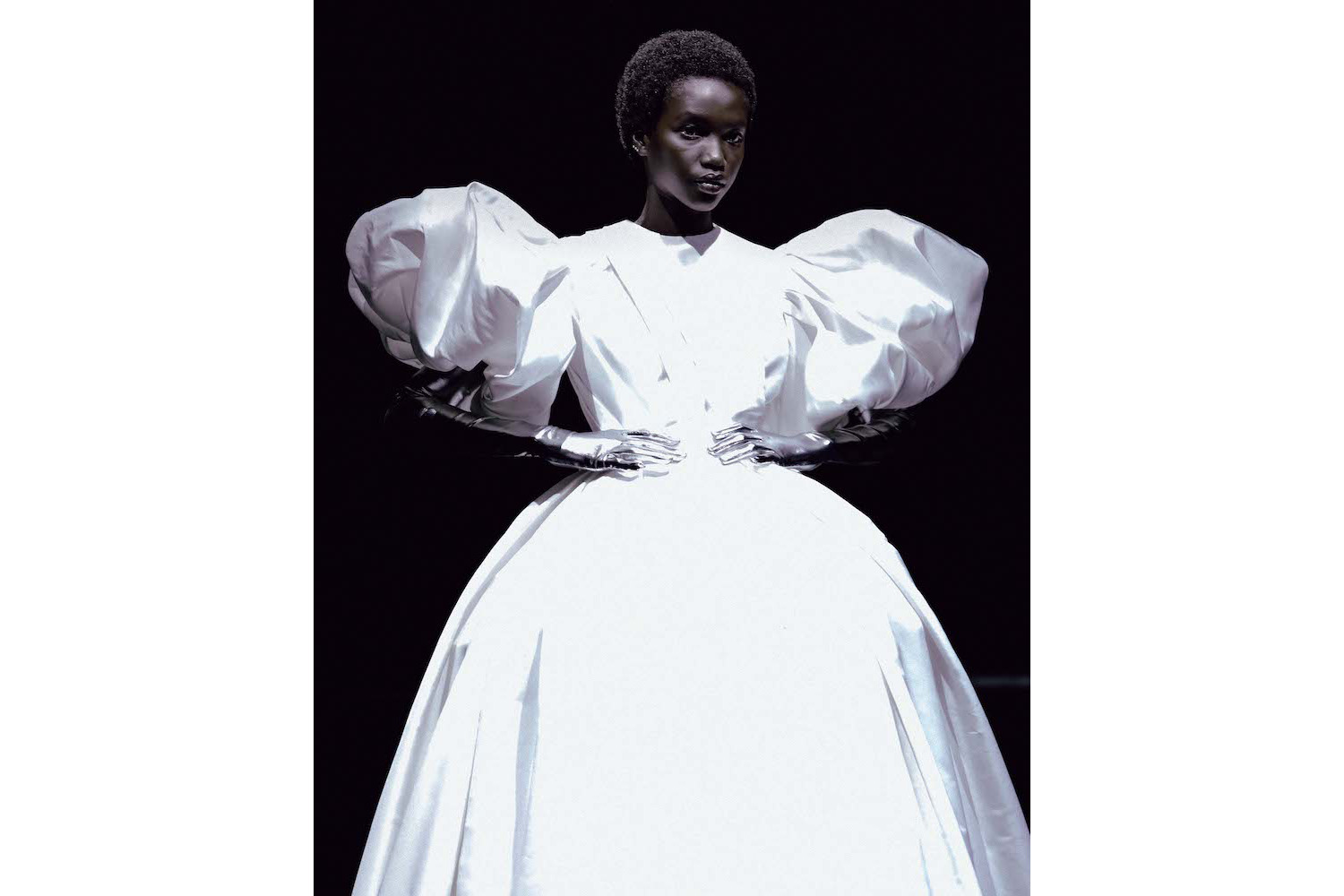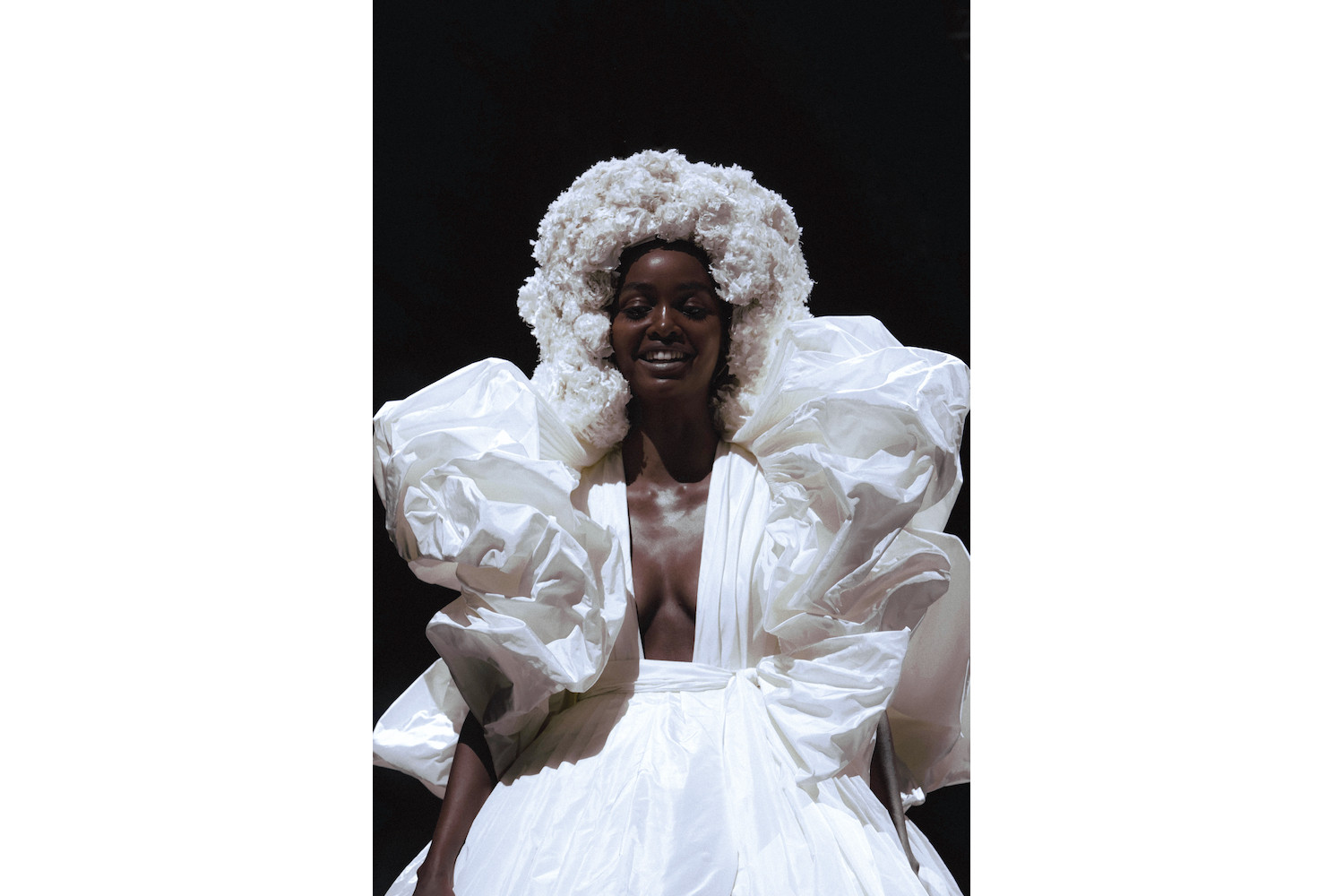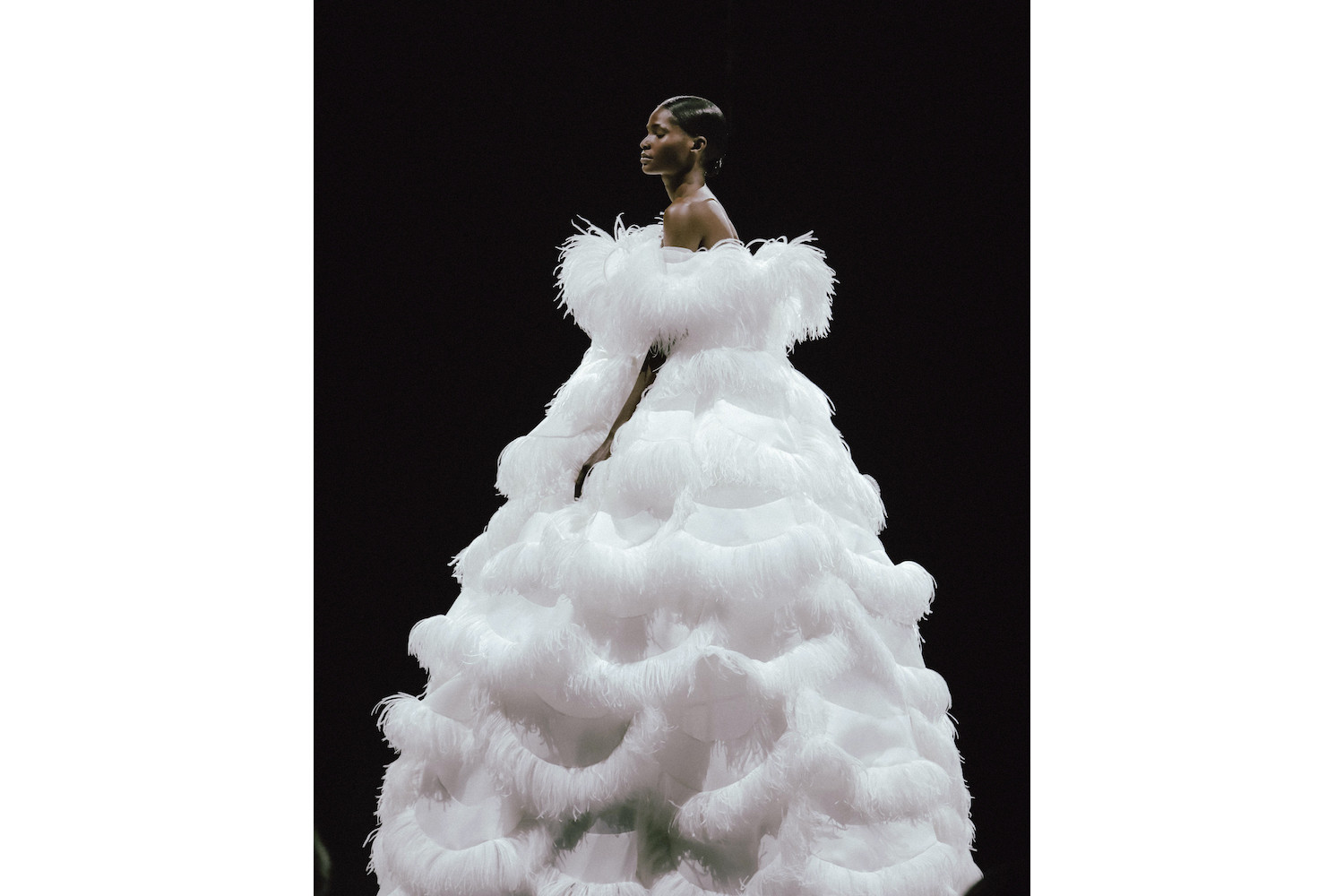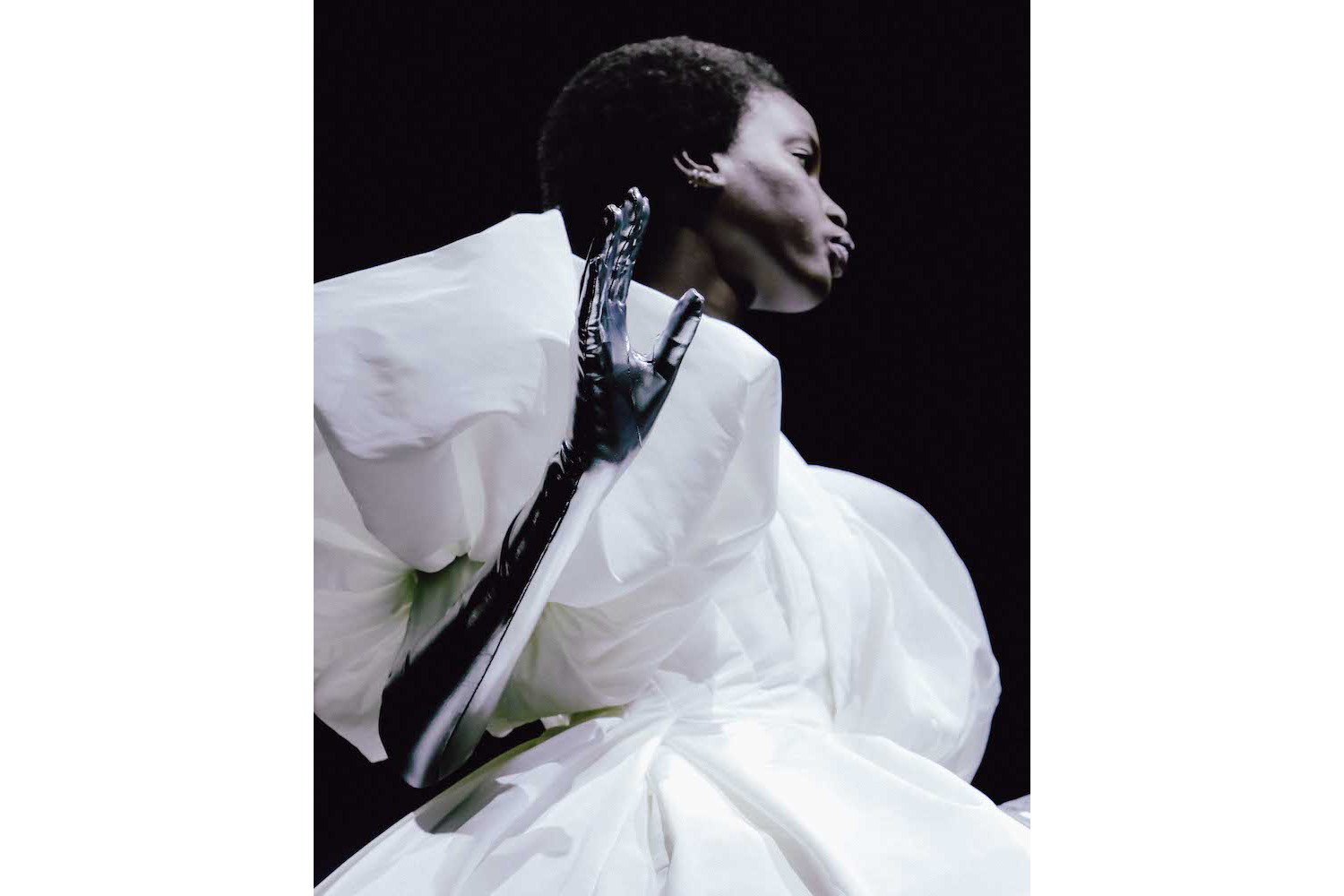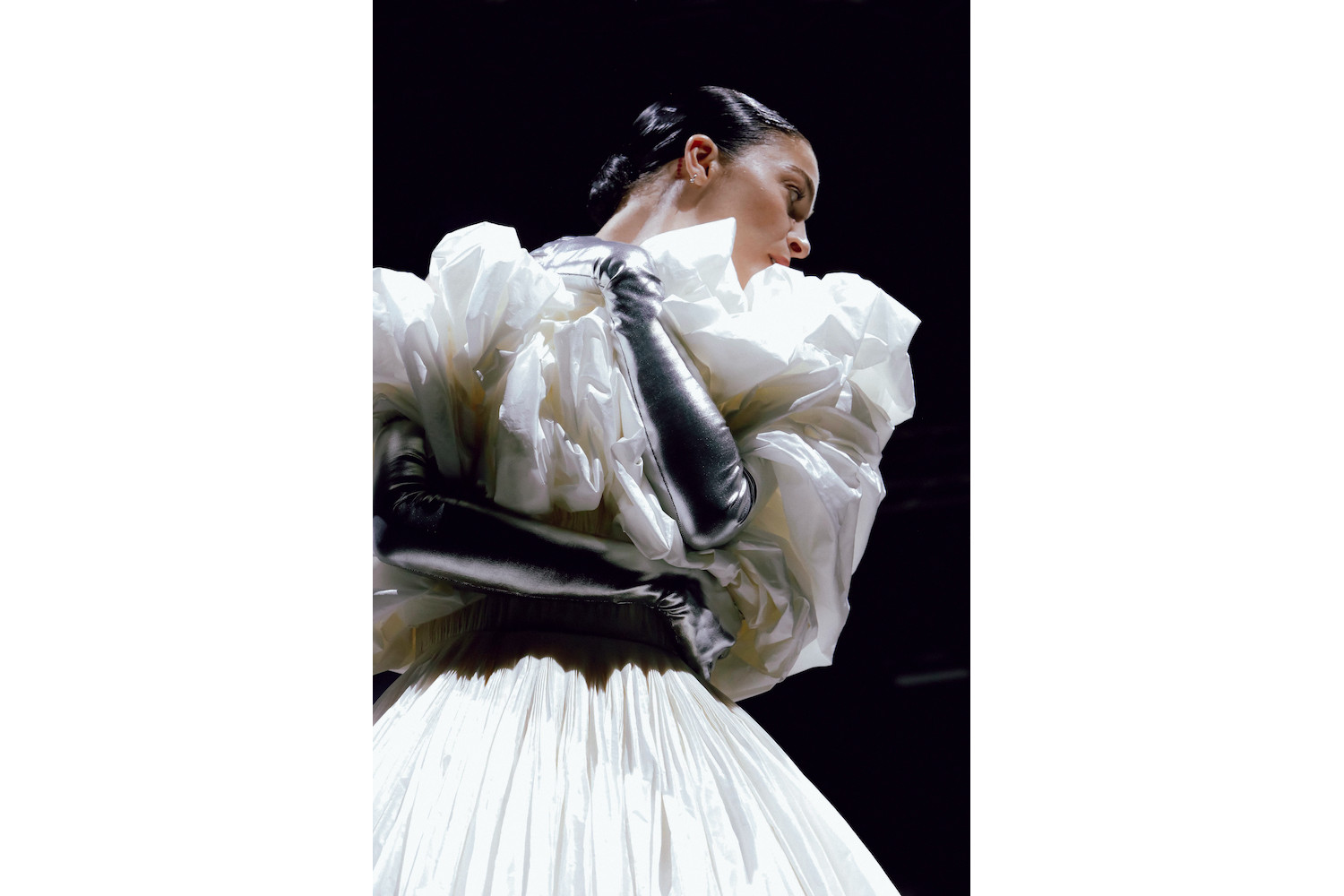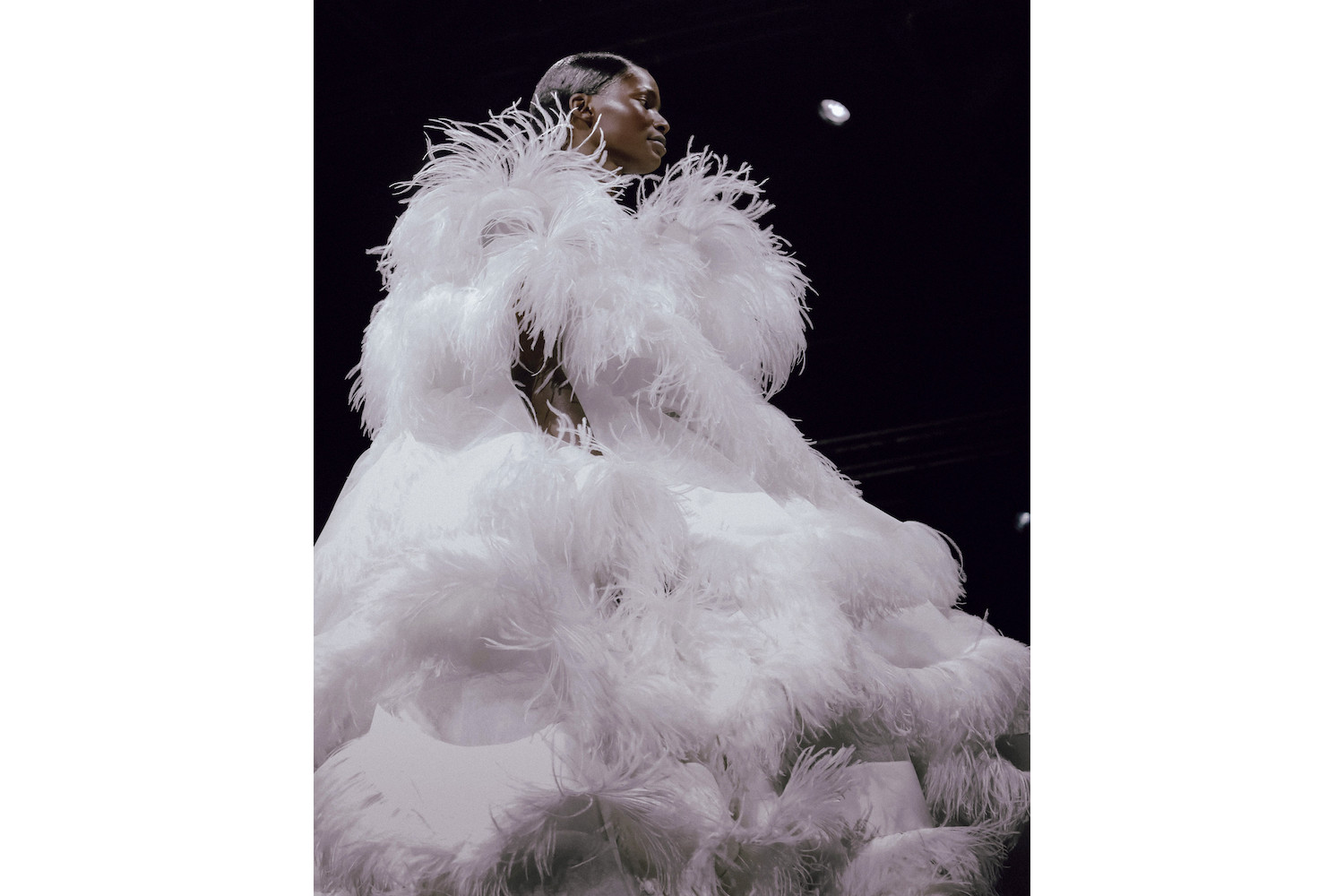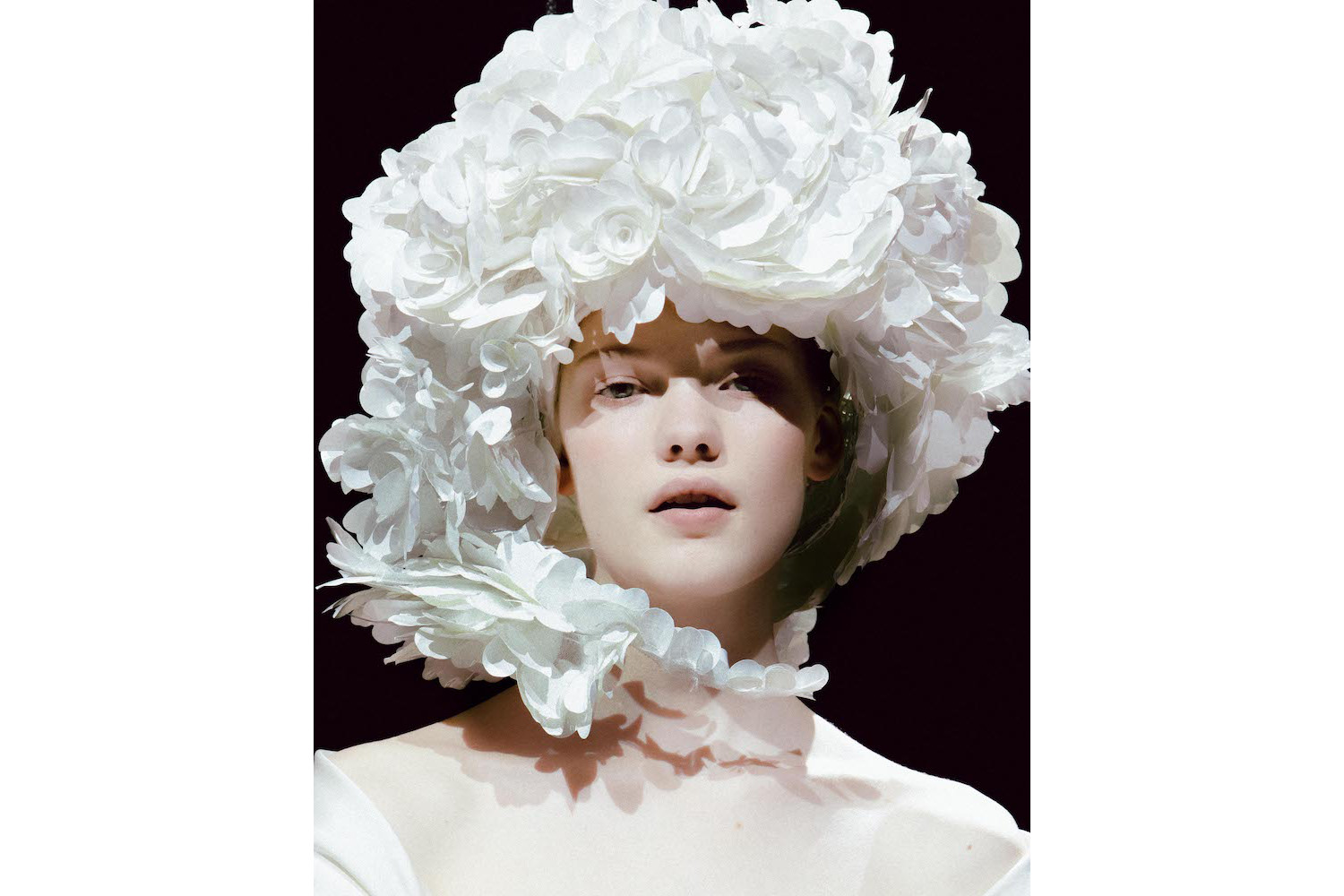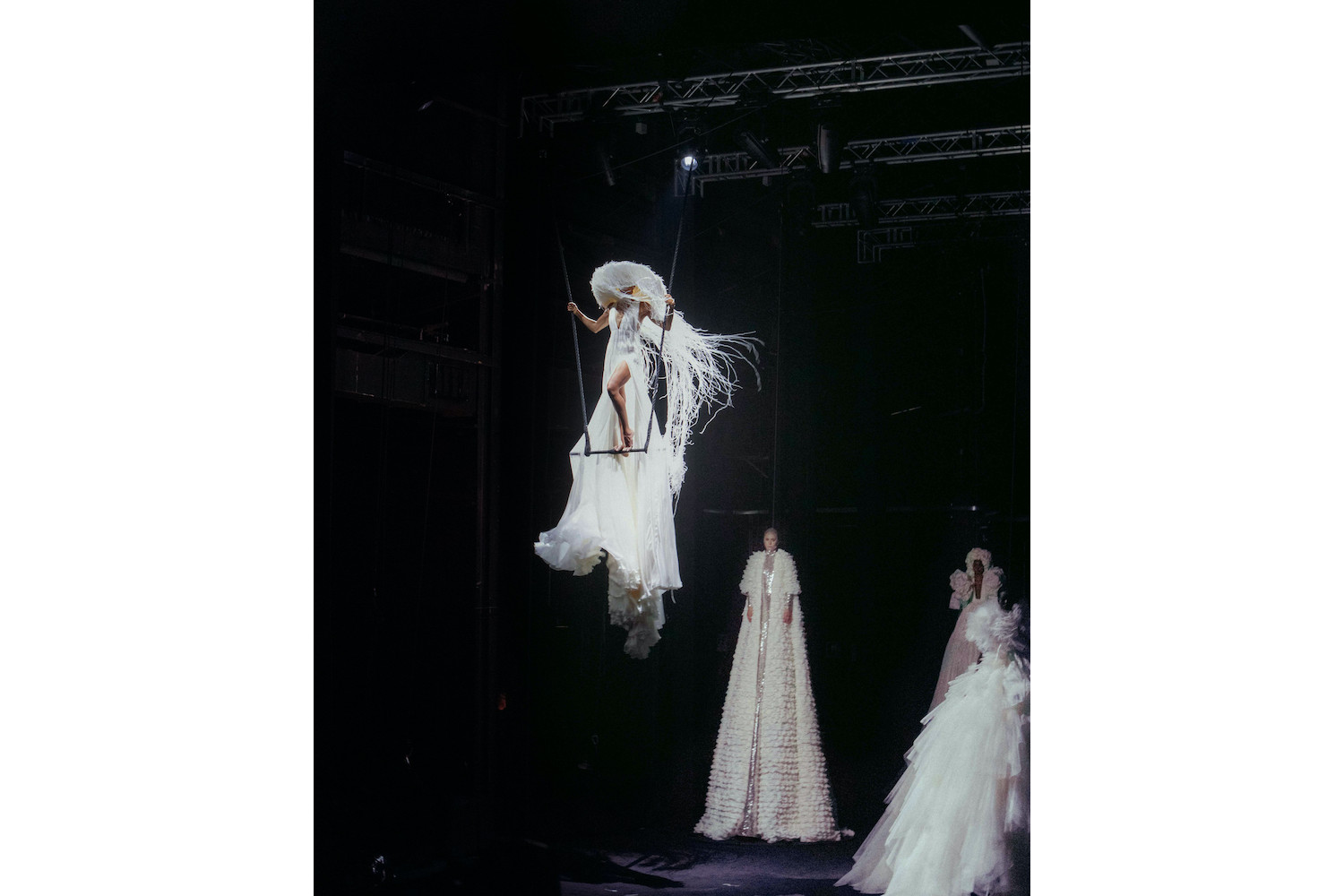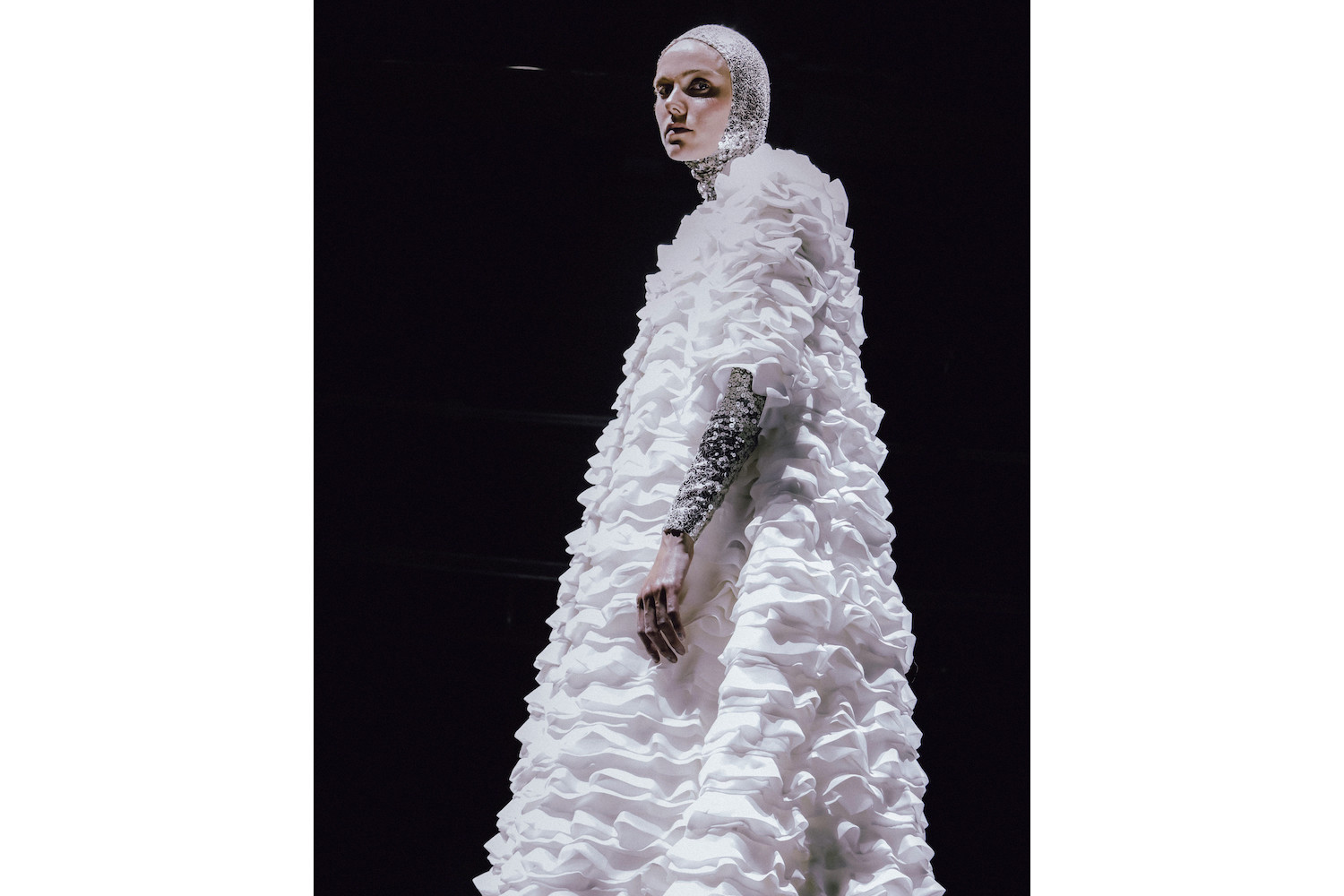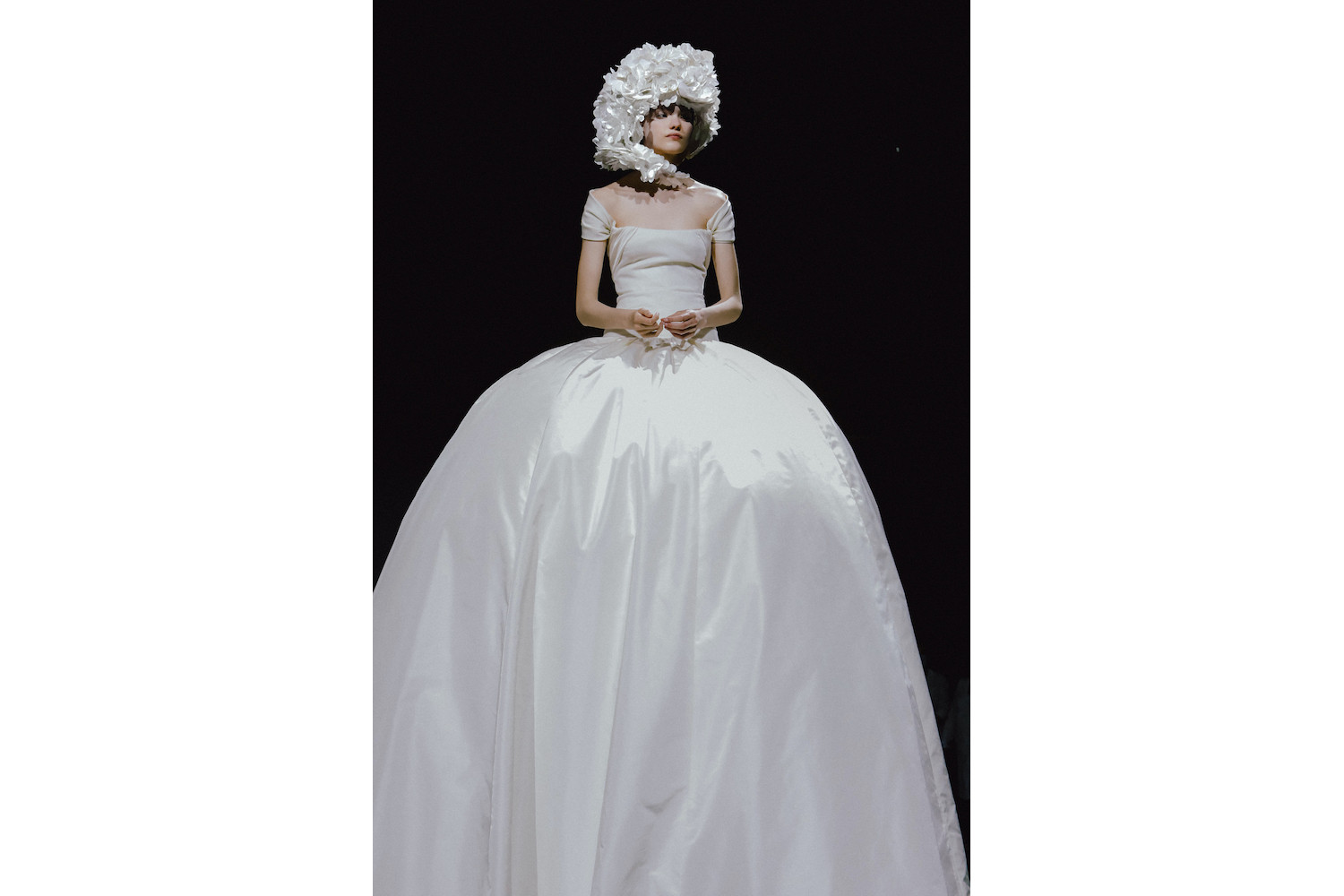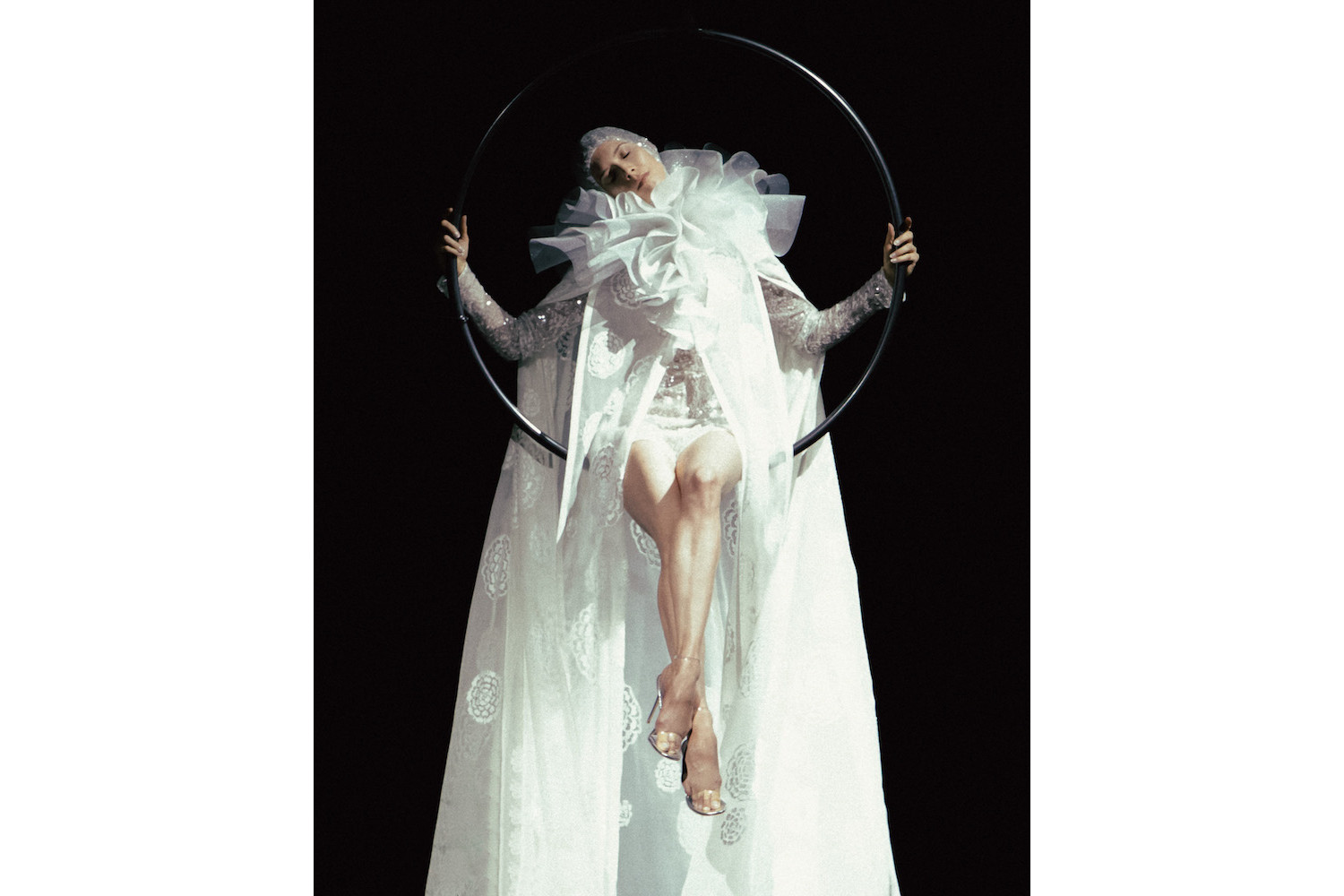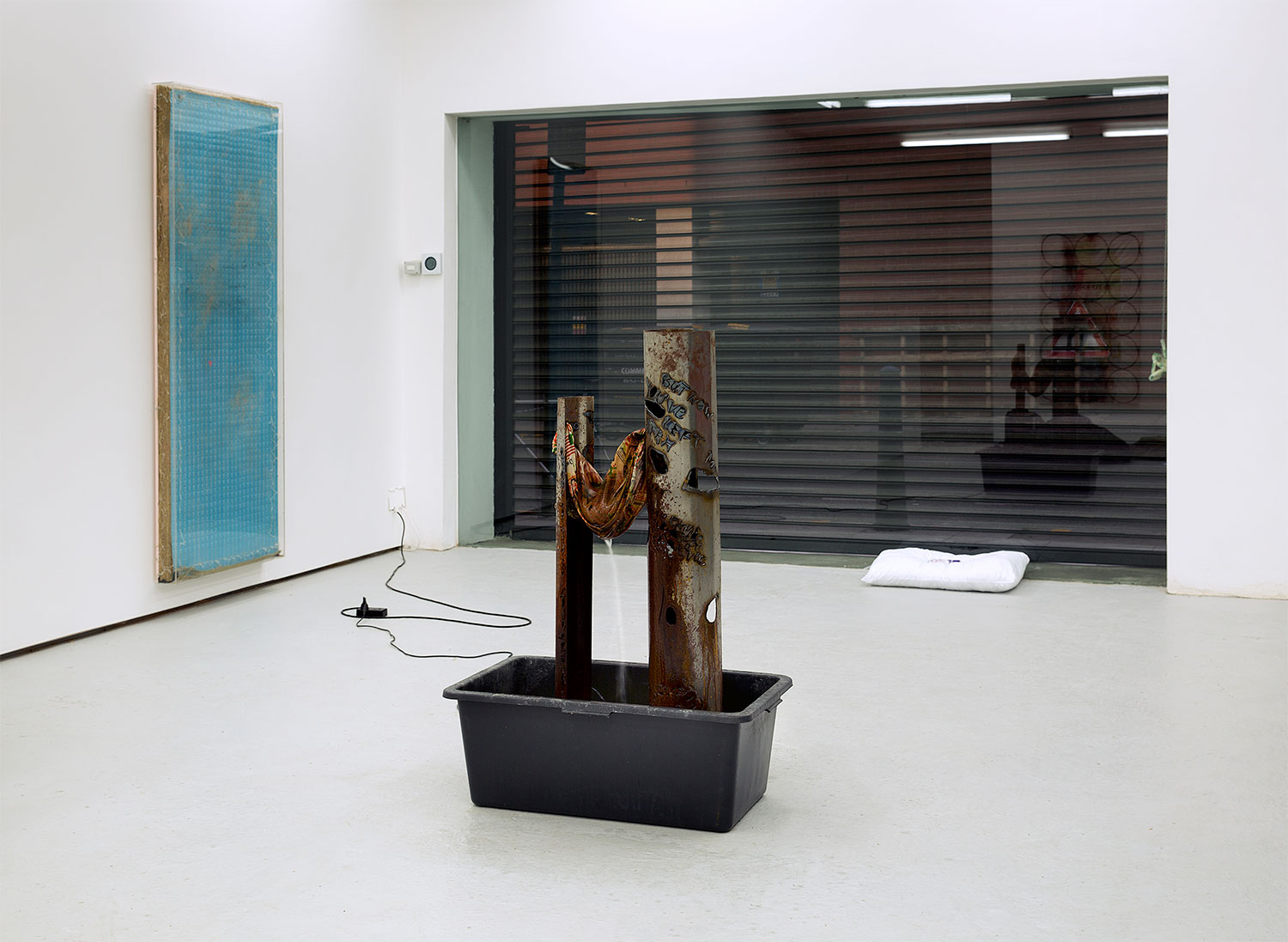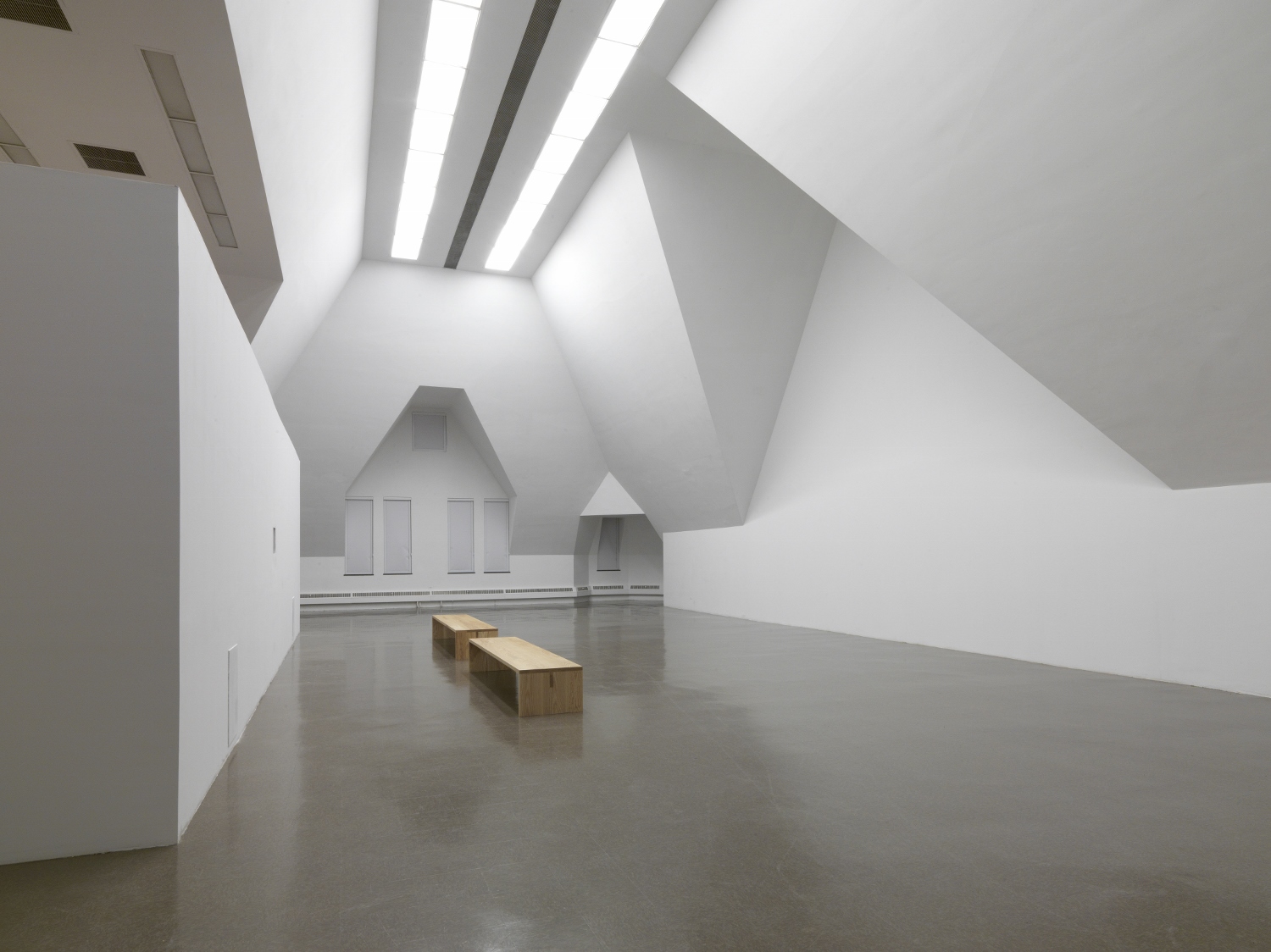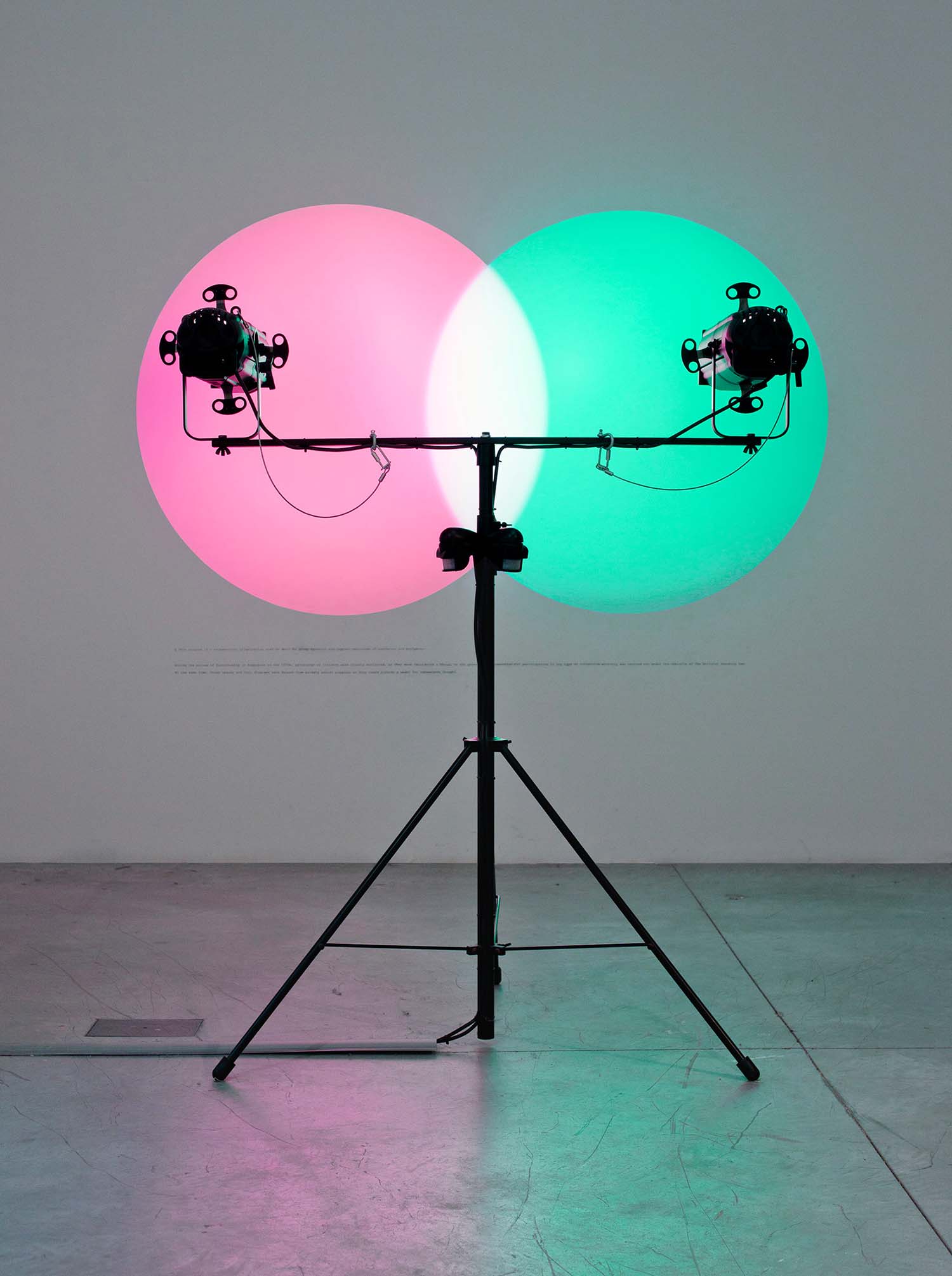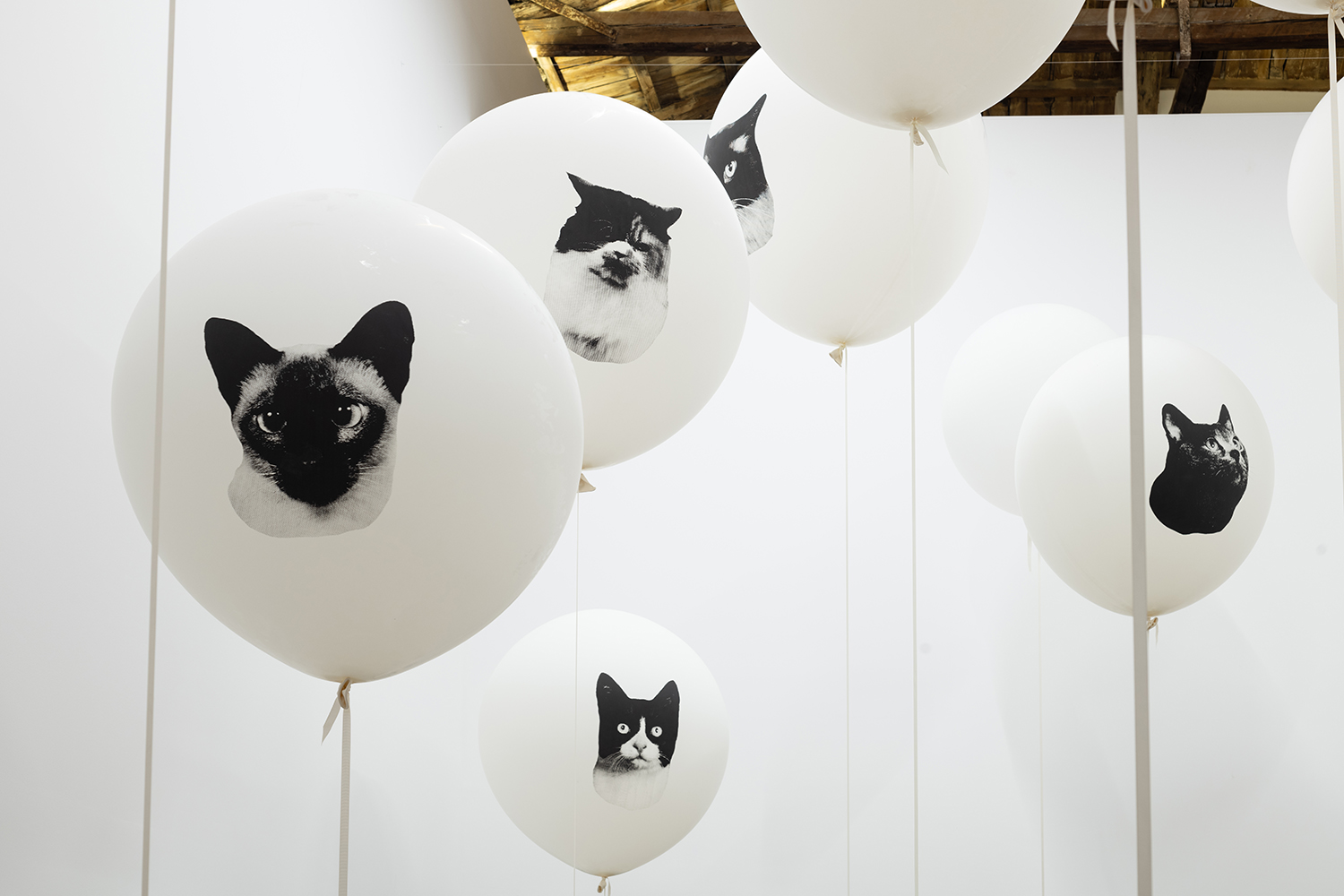Gea Politi e Cristiano Seganfreddo: We have lived through a long period of apparent light that exalted values of financial hedonism and often-uncontrolled commercial expansion causing environmental and cultural damage. Today, a global blackout has suddenly arrived — a darkness that is open to light. Of Grace and Light is a new Renaissance. What are the values that inspire you?
Pierpaolo Piccioli: We wanted to restore an oneiric delicacy, one not affected by the experience of the pandemic but rather revitalized by it. In the classical sense, light is knowledge, vision, and pure emotion. My intention was to place fashion, women, and poetry at the center of my vision.
Nick Knight: Change. Change is much needed and in every aspect of our lives. The fashion industry has been remarkably slow to change. This time it has no option, my only hope is that the fashion world embraces the future and does not allow fear and greed for money make them change back. We in the fashion world have to look on our impact on the life of this planet, both culturally and in terms of the environment. It is no longer appropriate to have large ostentatious displays of wealth.
CGPS: Of Grace and Light is a proper collaboration. How was the project conceived and what was the message you both wanted to communicate?
PP: My dialogue with Nick Knight comes from my deep interest in his visual dialogue — an apparently cold and artificial language that has been able to give back the perfection, warmth, and artisanal passion of the atelier. The haute couture creations presented in the performance have exceptional dimensions and required an incredible number of hours as well as unprecedented mastery. Their celebration was made unique by Nick’s digital projections that played off of the five elements, reuniting these works with their natural dimension. This was the internal feature of the project, which was very successful.
NK: Pierpaolo called me in February, at the very beginning of lockdown and said he was very excited to do something totally different from anything he had done before and collaborate with people in a new way. He wanted to change things. Pierpaolo idea and desire was to break free from that and show a new way, based on poetry, and surrealism and a freedom to express himself artistically. The best Fashion designers are true artists and their visions have very profound cultural importance.
CGPS: Do you think that fashion has political significance?
PP: Every artistic expression carries a message, an idea, and in this sense its political dimension can be expressed and captured. To consider fashion synonymous with politics is inaccurate, since my job is to propose an idea of beauty, full of meanings and ideas. However, politics are still closely linked to aesthetic exploration.
NK: All fashion is political. The act of dressing is political. Fashion is our primary way of saying who we are, what we believe in, all our values are reflected in how we dress. No one dresses by chance, everyone deliberately or unintentionally tell the world who they are by the way they dress. We should celebrate fashions importance and that it has a voice that means a lot. Just like popular music in the 1960’s realized it was about more than just love songs and that it too had a political voice to bring change in the world, Fashion has the same power. We must celebrate this.
CGPS: “Of Grace and Light” is a magical and acrobatic work that integrates the complexity of cinema with performance, dance with video. A great plastic theater of fashion between life and bytes. How did you integrate all of these different levels? What are the critical issues you overcame? Did you encounter anything unexpected?
PP: It is perhaps because of the great love that binds me to cinema. In fact, working in Cinecittà Studios was an exciting experience, but not an unnatural one. Digitalization is already an experience we live through on a daily basis. The biggest challenge for me and for all the seamstresses and tailors who worked on the project was, if anything, to make out-of-fashion outfits. It was an effort that was anything but digital — handmade by dozens of hands for hundreds of hours.
NK: Fashion is created to be seen in movement; no designer ever imagines a piece of clothing to just be seen as a still image. Fashion film is the new fashion photography. Due to the lockdown I could not travel for the shooting and the surprise was how very enjoyable it was to work via Zoom. We had a team of people in Rome, great camera people, and we directed each performance via Zoom from SHOWstudio in London. In a way it was no different to directing normally as I often have 3 or 4 screens in front of me and I direct by talking to the camera operators over headphones, I am so used to working with other creatives by looking at a screen and directing them, whether it is my retoucher, animator, editor, I am always working with people that way.
CGPS: Presenting fashion on the move as a visual and non-tactile experience is always complex. With “Of Grace and Light” you also have managed to convey the materiality of the fabric and the complexity of the collection. Do you think you can present fashion today in a contemporary way, without showing it but adapting it to the moment?
PP: Certainly, and this experiment proved it. I think that beyond the medium one uses to show a work like this, it is necessarily the work itself that emerges. If its value is real, if the artisanal value is concrete, the artistic work of spectacle, though complex and sophisticated, has a good basis on which to work.
NK: Fashion is always a common desire and always of the moment. We are all subject to the same global as well as cultural influences so fashion becomes a way of expressing our feelings together. Digital ways of communicating are now so widespread that virtually everyone communicates via a digital interface, which is simply where we are culturally. We have to be open to hear and allow our audiences and fans to interact with us.
CGPS: Returning to work in Rome, how have you changed? What has it meant to confront this new form of life in which we are still immersed?
PP: Human contact has never failed me, not even during the period of isolation. The possibility to look each other in the face, even with the necessary distance, was a confirmation of empathy. I am proud to say that this empathy has accompanied me, my teams, and the people dear to me at all times.
CGPS: What does tailoring mean to you? Manual dexterity? The love of detail?
PP: These are the values of the atelier and they are the foundation of my personal and professional experience. The love for what is achieved with one’s own hands with patience, ritual, and a traditional wisdom that has been handed down for generations. This is what animates the culture of couture. Working on the creation of a dream is the greatest privilege.
CGPS: You often talk about social and cultural sustainability. Is a new vision of the world ready?
PP: It must be. By now, these issues have been understood and discussed. Fortunately, they have officially entered into the collective discourse. The time has come to put theory into practice.
CGPS: Is yours a political message? Does fashion have the power to change society?
PP: As already said before, everything is political. Fashion can certainly convey messages that contribute to a collective reflection, like any other art form. I am happy to have expressed ideas that I believe in through my work as a couturier. Obviously, this is not the same as taking purely political action. To do that one can devote oneself to activism.
CGPS: What did it mean to be confronted during this new different form of life in which we are still soaked?
NK: It was thrilling. I started to see the future and it was much better than the present or the past.
CGPS: Do you think that this production opens up a new way of presenting fashion? Digital and live?
PP; NK: Surely the forms of expression are endless, and it is good that they are explored in a free and experimental way.
CGPS: What won’t we find anymore from the pre-COVID world? What will remain? What would you really not want anymore?
PP: Overproduction and the prevalence of marketing over the value of humanity have shown their fallacy. This traumatic experience has opened many people’s eyes to what really matters: what is indispensable, beautiful, and fair, and what is not.
NK: We have a long way to go, but the most important thing is to remember that the future is best placed in the hands of artists and not big business or the military.
CGPS: Do boundaries between disciplines still exist? Do they still make sense?
NK: No, we are just creative people and artists, therefore our role is simply to express our feelings in whatever form we want.
CGPS: You are both great artists working together. What did this experience of comparison between different areas give you?
PP: We certainly have learned something from each other, which is always a great source of enrichment. We confronted a metaphorical theme using different yet complementary languages. This made our collaboration successful and unique.
NK: Understanding the mind of a great artist is always a huge joy. Experiencing life through someone else’s eyes is a real privilege. One cannot help but to come out wiser at the end of such a wonderful collaboration.
CGPS: Will creativity save the world?
NK: Yes. Evolution always goes towards the positive. The future must be in the hands of artists, not of big business or the military. I want to see a future guided by people who love life, who care and love each other.
CGPS: The Renaissance was a historical period of great upheaval: the great national monarchs were born, the Americas were discovered, Luther introduced the Reform… What is happening now? How do you see it? The Renaissance has man at its center. Is this still possible? Is man the turning point?
PP: Humanity is showing more and more its absolute centrality every day. It is time to bring man back to the center, without the sense of omnipotence that the recent world lesson has blunted, but with the awareness that the value of the human being is the most important and must be defended above all others.
NK: The new technical age is upon us. Humans have to understand that there is a new evolutionary age happening already. This is now the age of the AI, and of the cyborg.
We have created cyborgs with higher intelligence than ourselves and cyborgs that can teach and learn, we have to stop seeing ourselves as the most intelligent pieces on the planet. `Will we be intelligent, and wise and even humble when looking to the future? That is the biggest question facing the human race at the moment.
CGPS: There is much talk of historical revision and cancel culture. What do you think?
PP: I think it is inevitable, in order to dialogue with our times, to reckon with a general sensibility more attentive to ethical and cultural issues. The fact that there is a more aware and demanding public, and that so many mistakes made in the past are no longer acceptable today, is good for anyone working in the sector.
NK: People have been oppressed for so long, there is so much social injustice across the world, absolutely we need to show empathy and address the things that cause huge pain and suffering to people. If that happens to be how we remember or celebrate the past then we have to change that too. People should not be discriminated against for their race, age, physical ability, sexual orientation, gender or class, these things we are born into this world with and should be celebrated.
PP: The time has come to free fashion from the clichés of the past, to reconnect it with a greater purity of purpose and allow it to innovate in total freedom without market conditioning, which makes little sense today. In short, my urgency is to dream again.
NK: We might be the only intelligent life form in the whole universe, this is not an arrogant statement but a realistic possibility and therefore we have the role of being the enlightenment ourselves. This role is of immense importance and we should do everything we can to keep this world alive. Once it heats up it will never cool down and we will have lost any chance to bring life and intelligent thought to the cosmos. It is so important that we all play our part. That is why Pierpaolo’s decision to not fly hundreds of models, hair make up, press etc around the globe is one important but still small step to help keep our planet alive. This is why we cannot go back to the way the fashion world was before.
The biggest emergency is the pollution of this beautiful planet.
The lack of education, care and love in our cultures. The glorification of fame and money, which are false goals. People must be encouraged to believe that they are as important as anyone else.
The performance Of Grace and Light was presented in July 2020, in Studio 10 in Cinecittà, Rome on the occasion of The Haute Couture Autumn Winter 2021 collection by maison Valentino.

